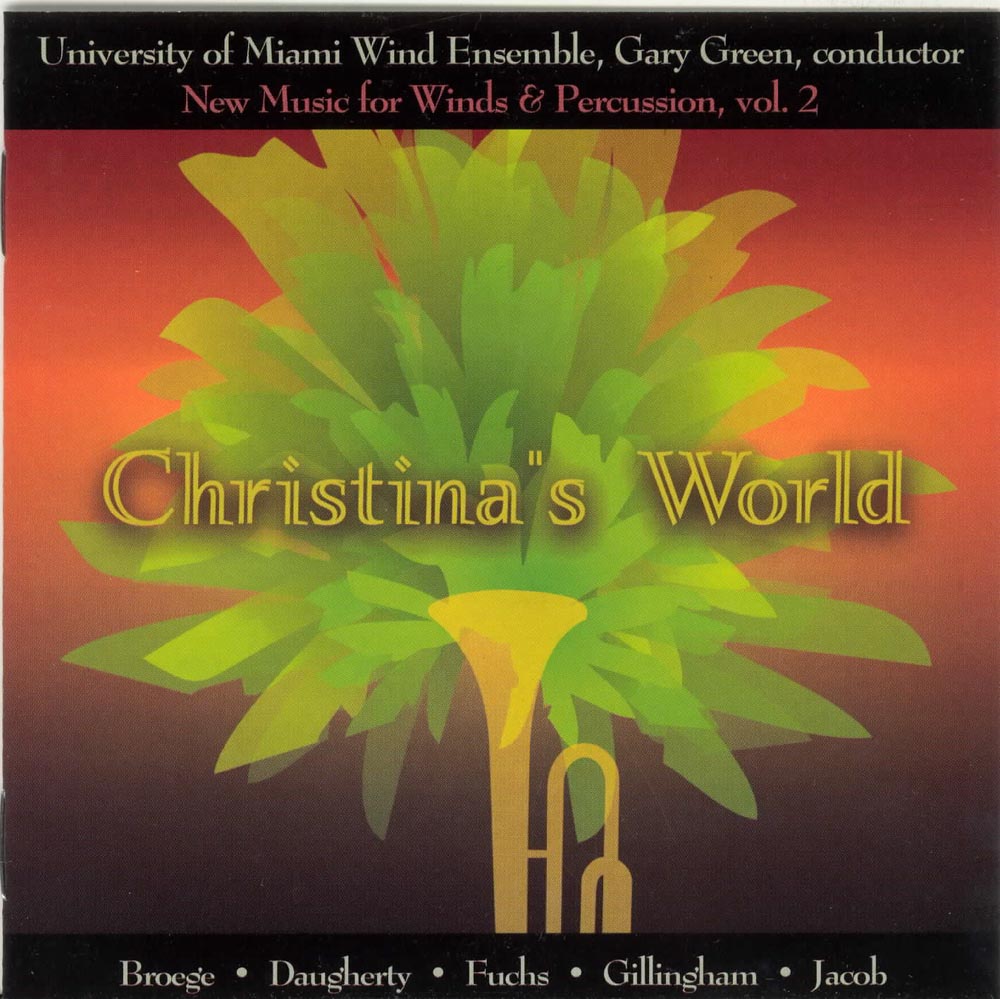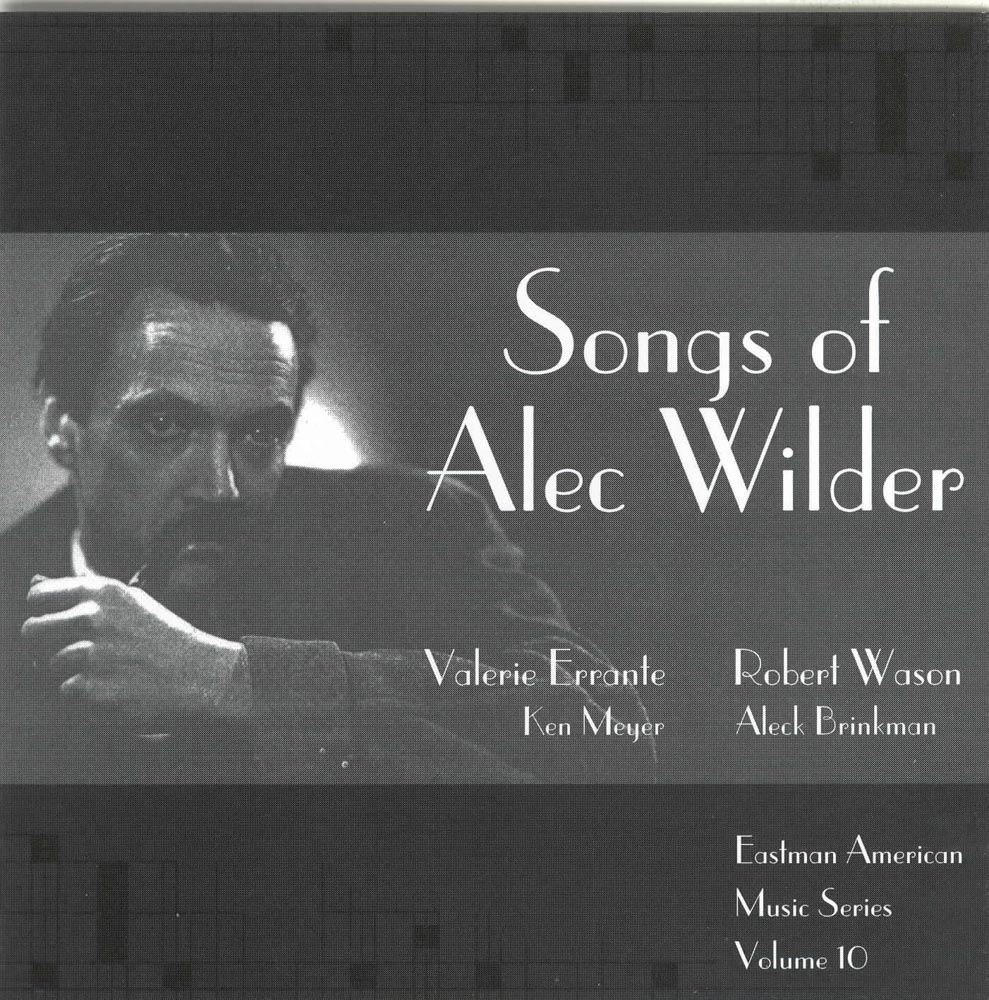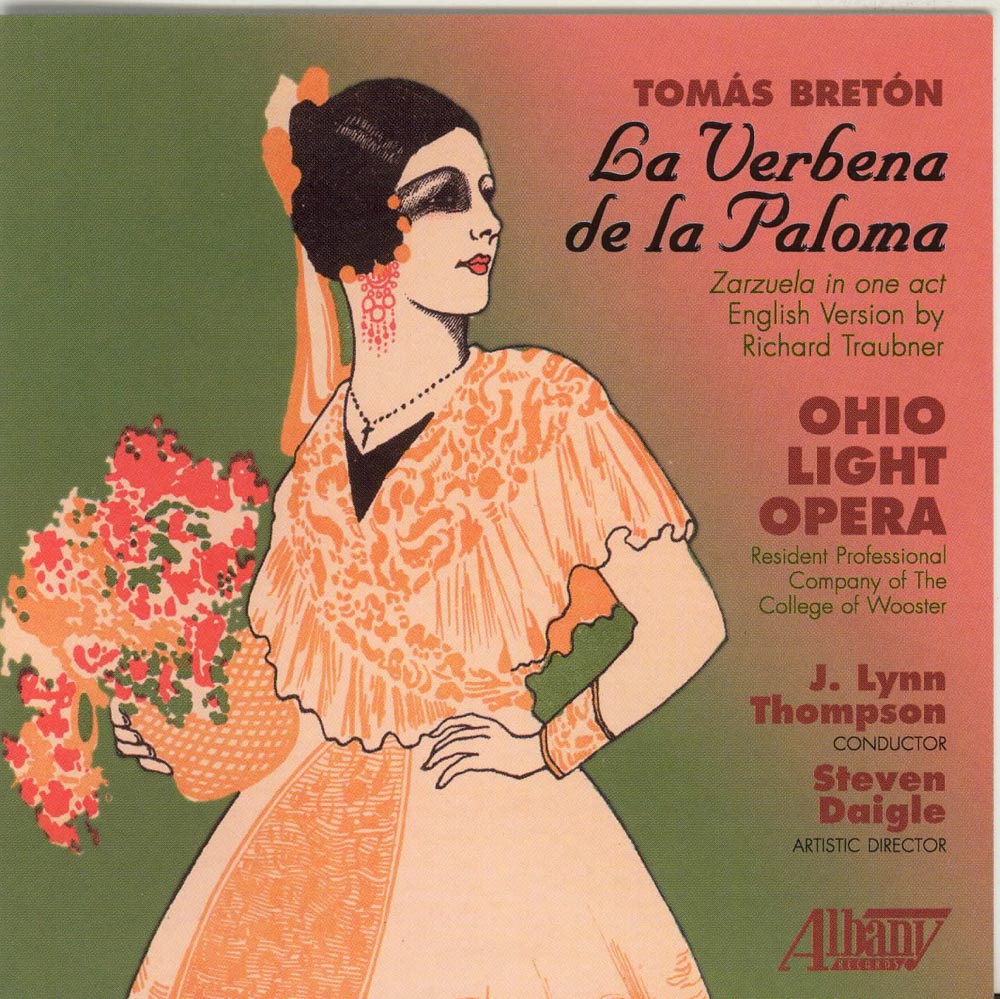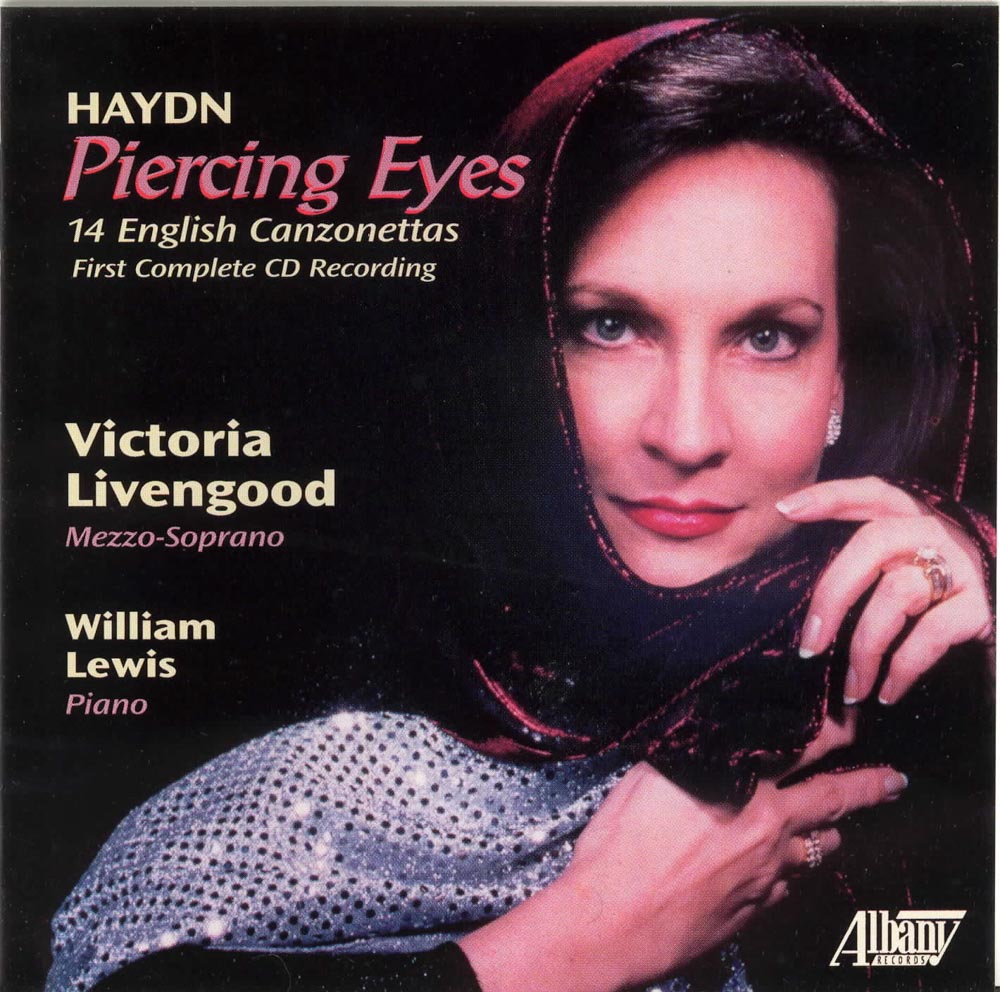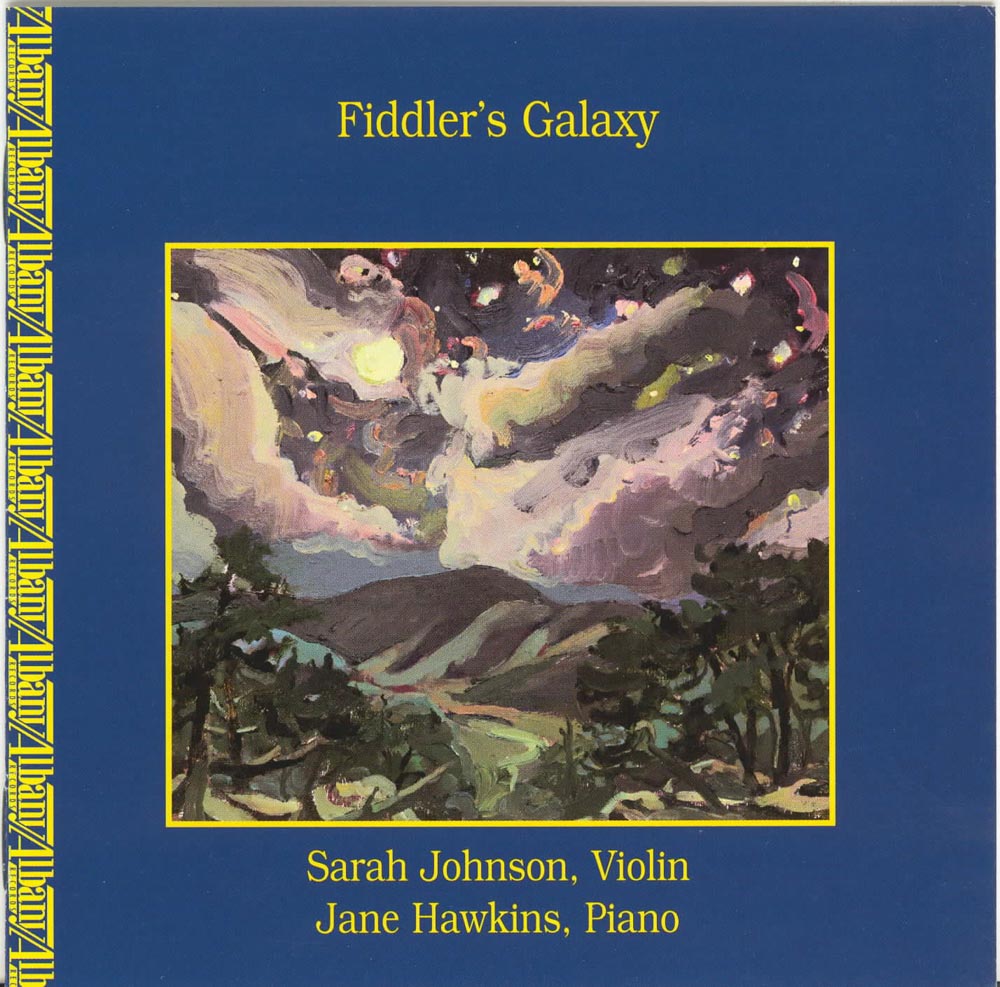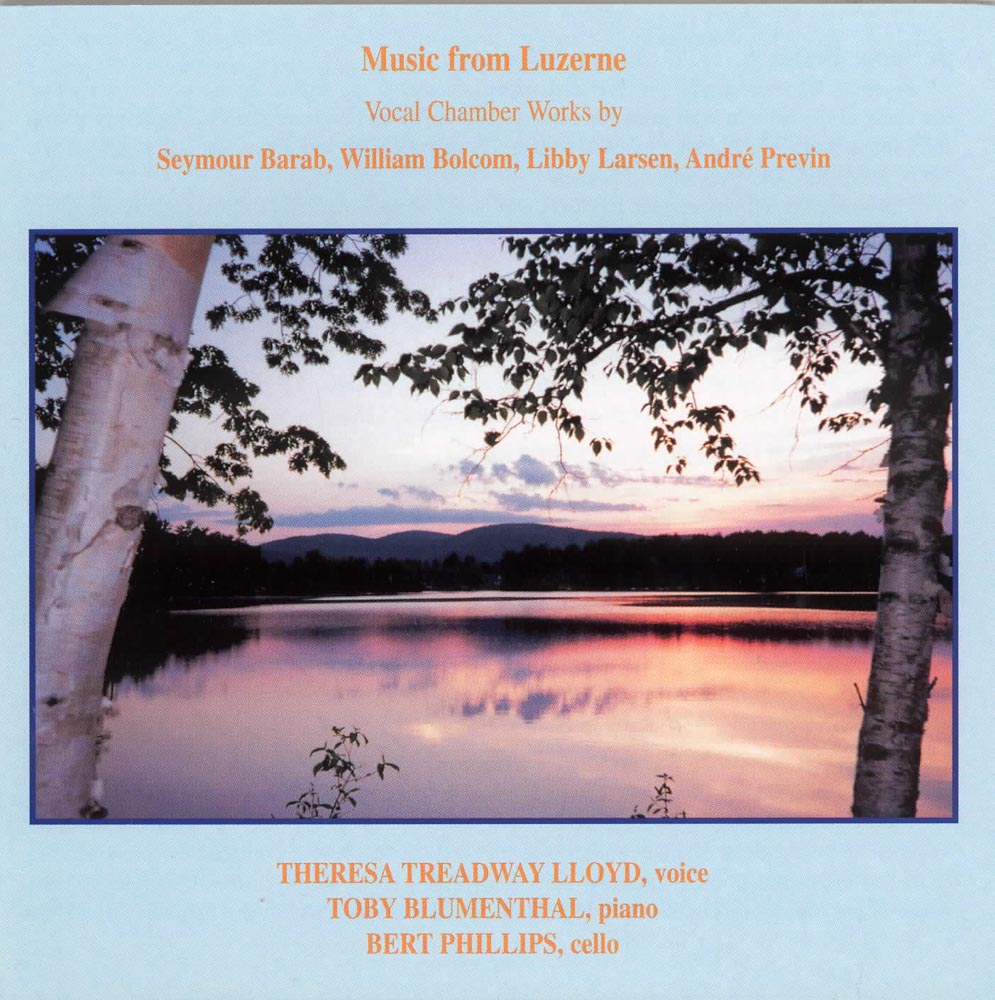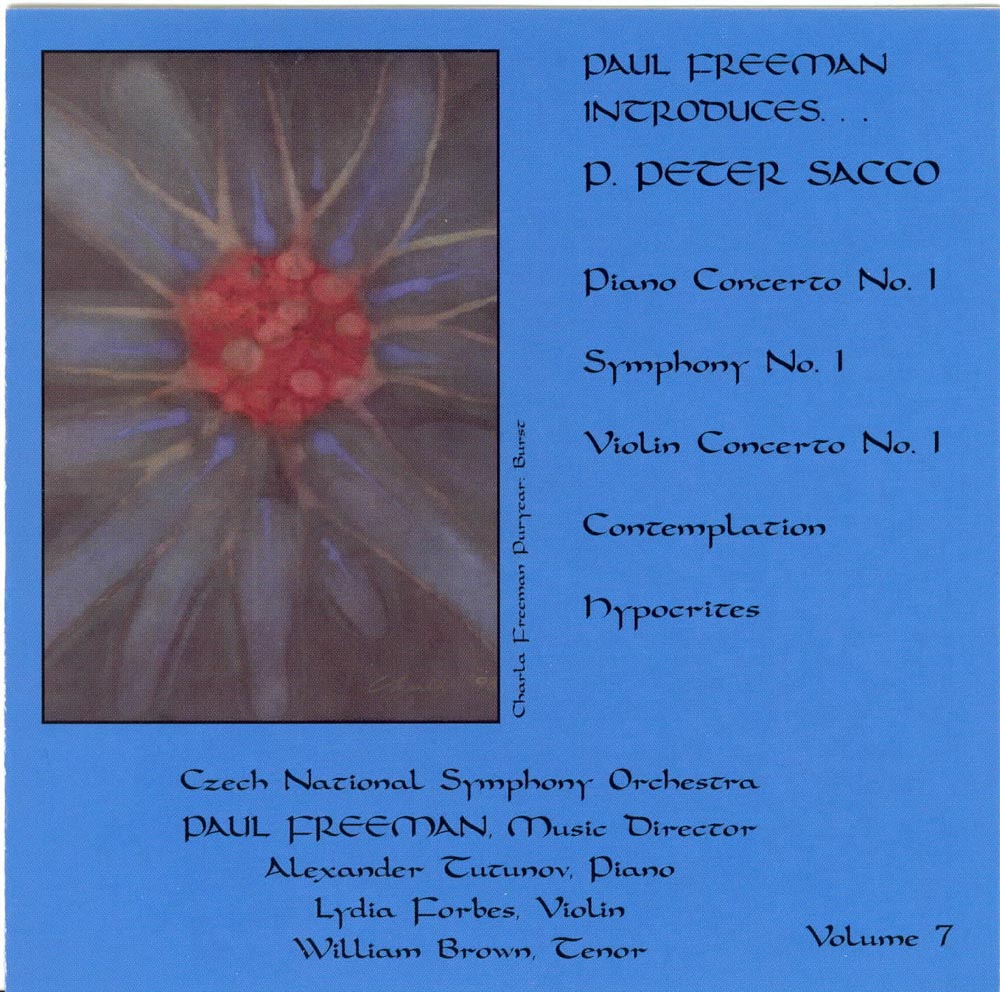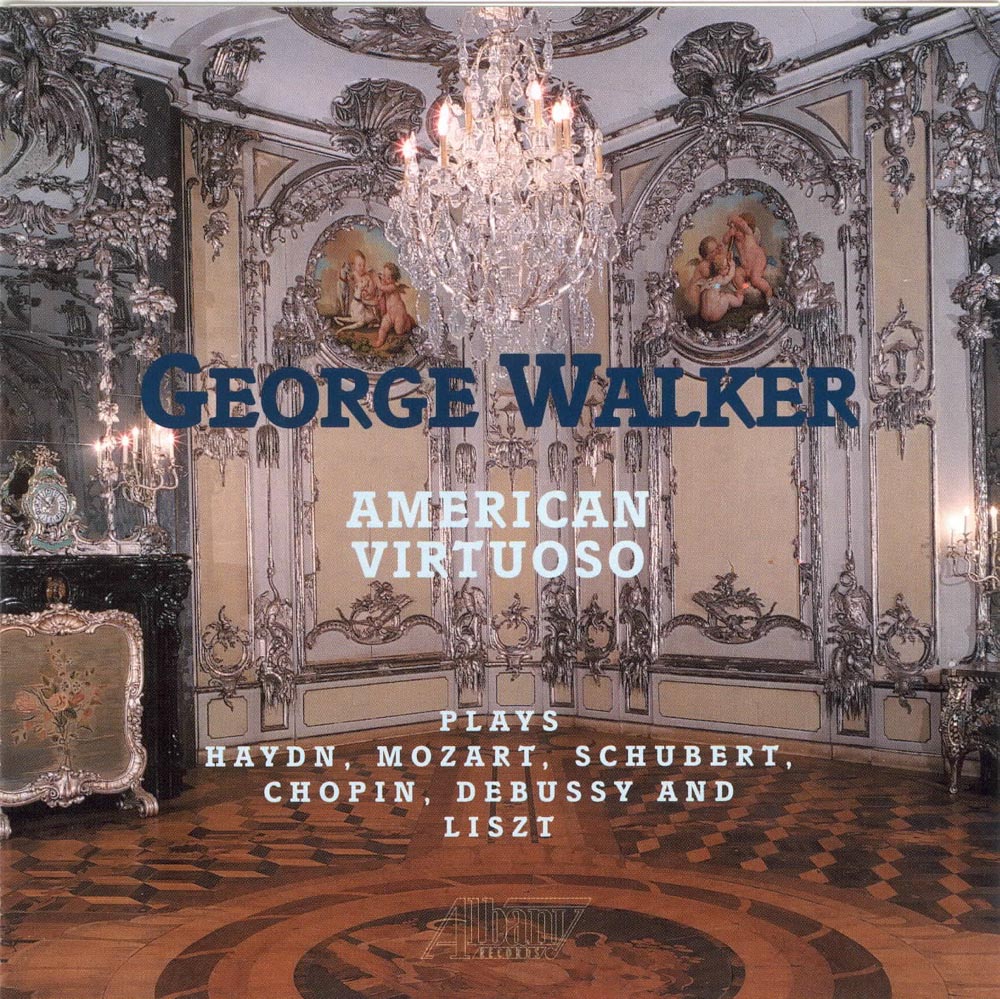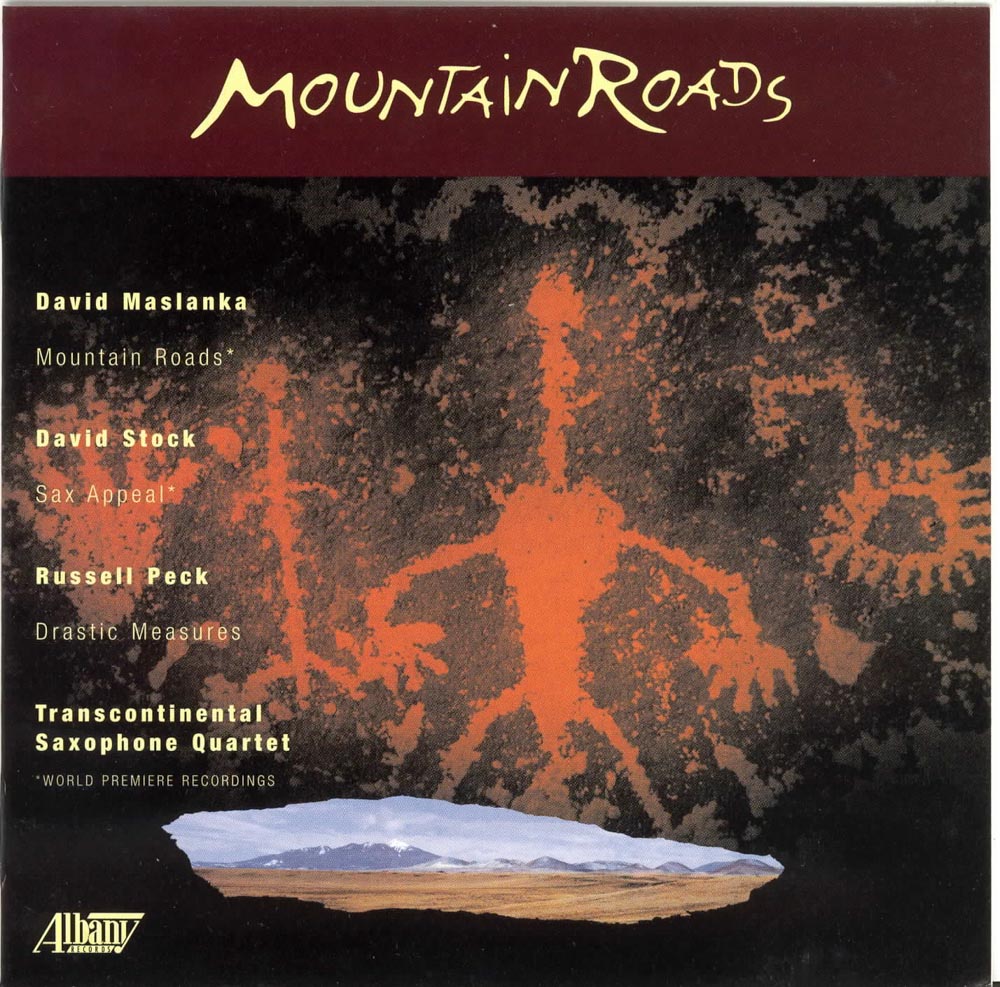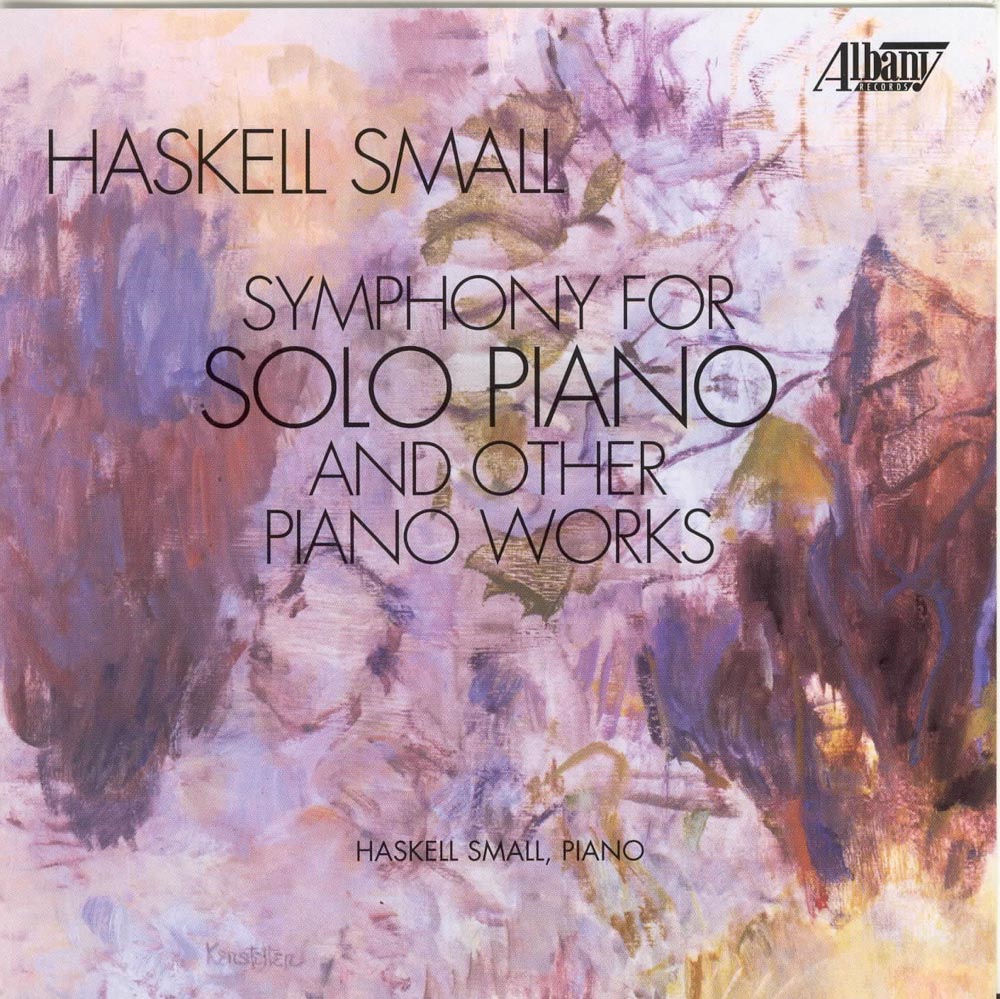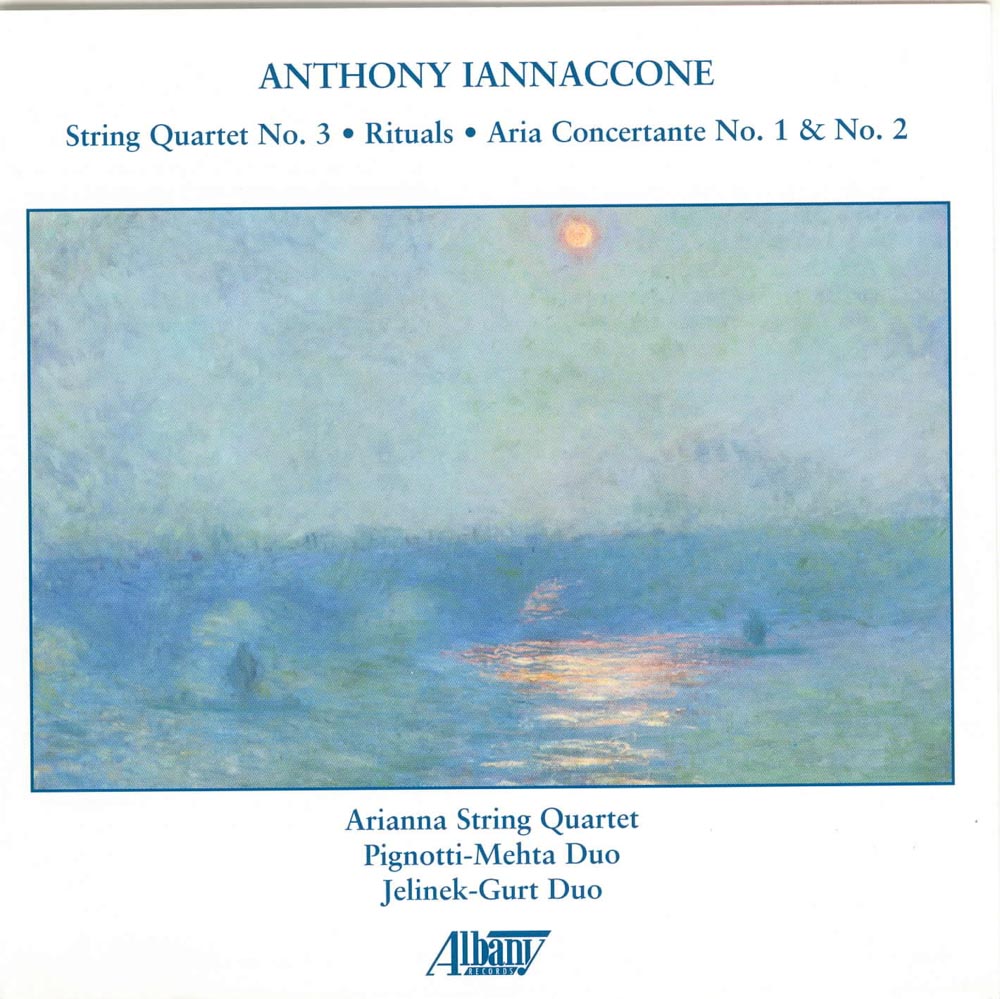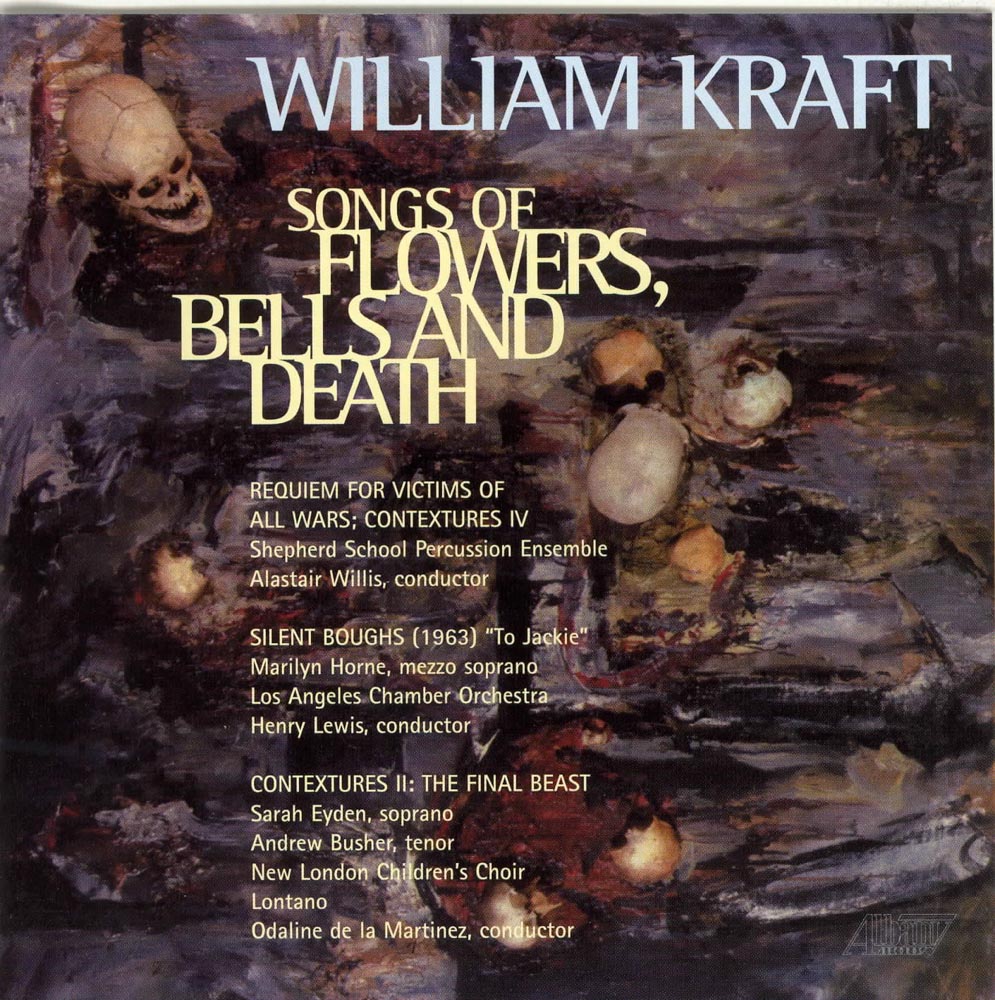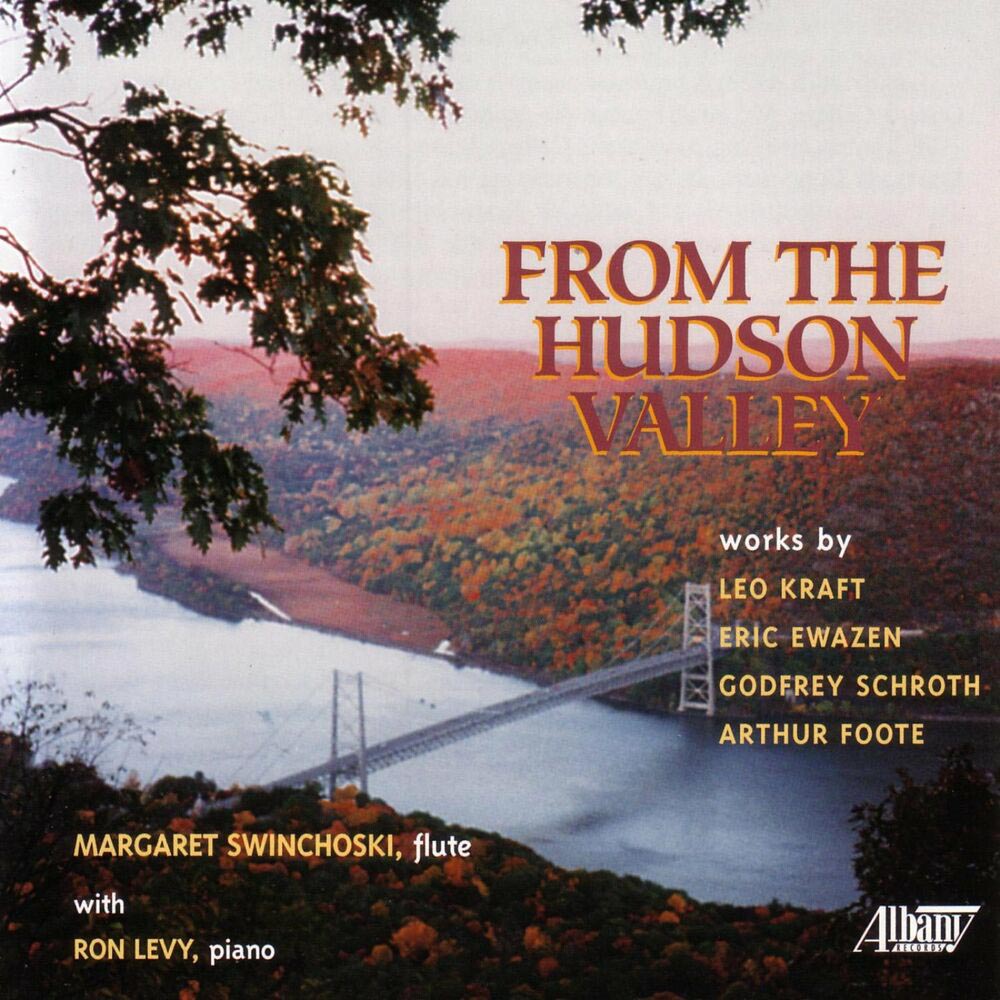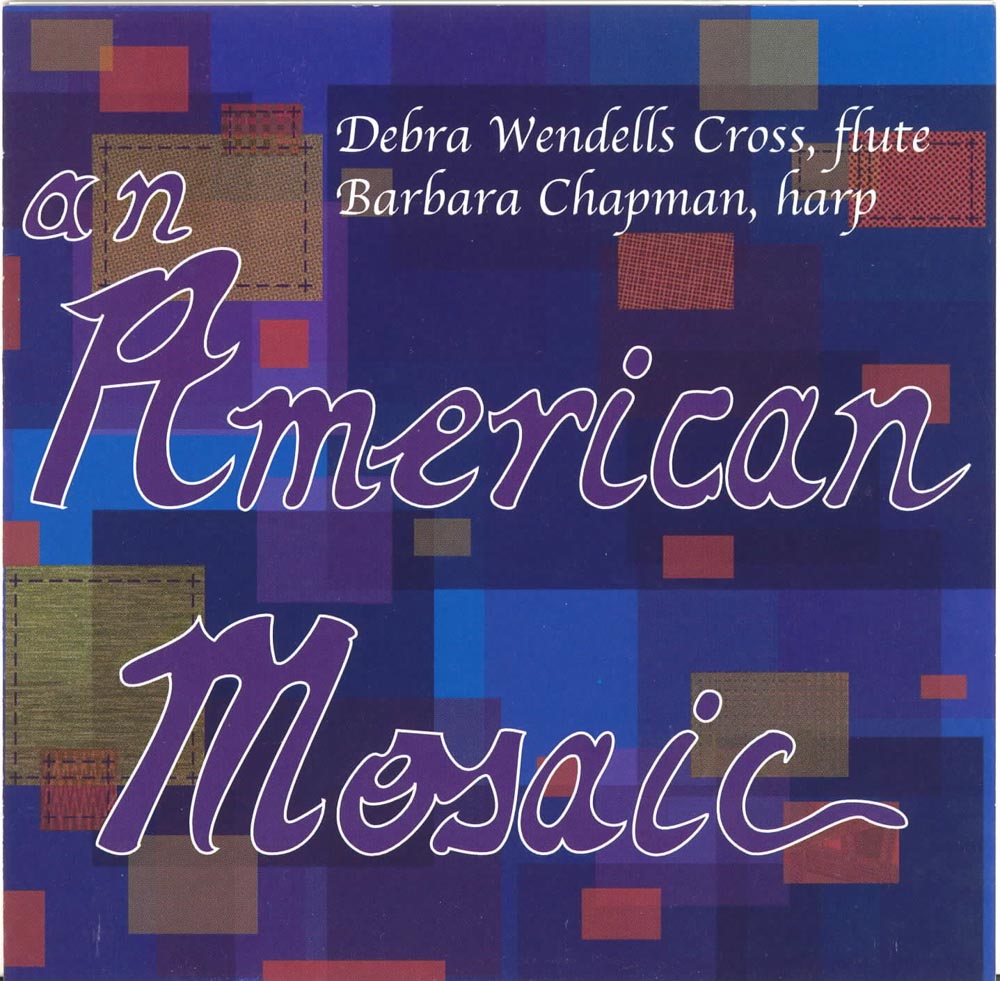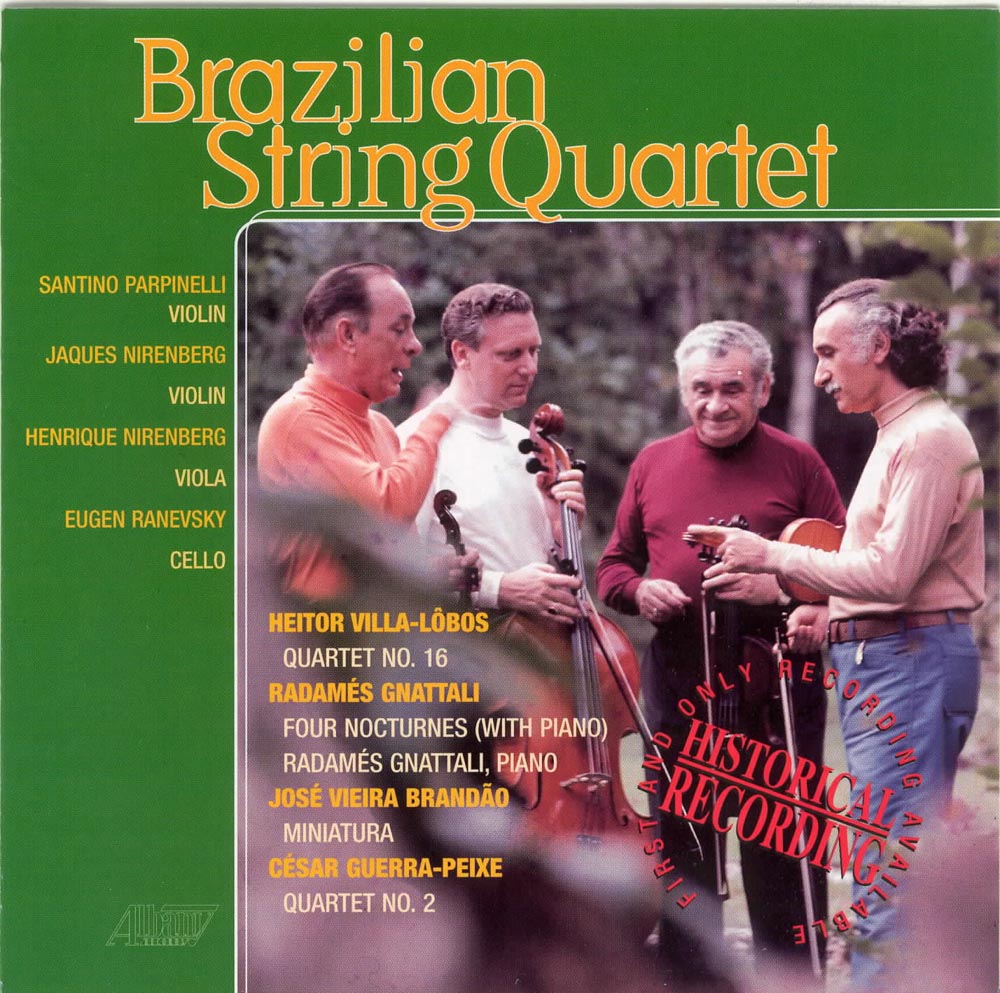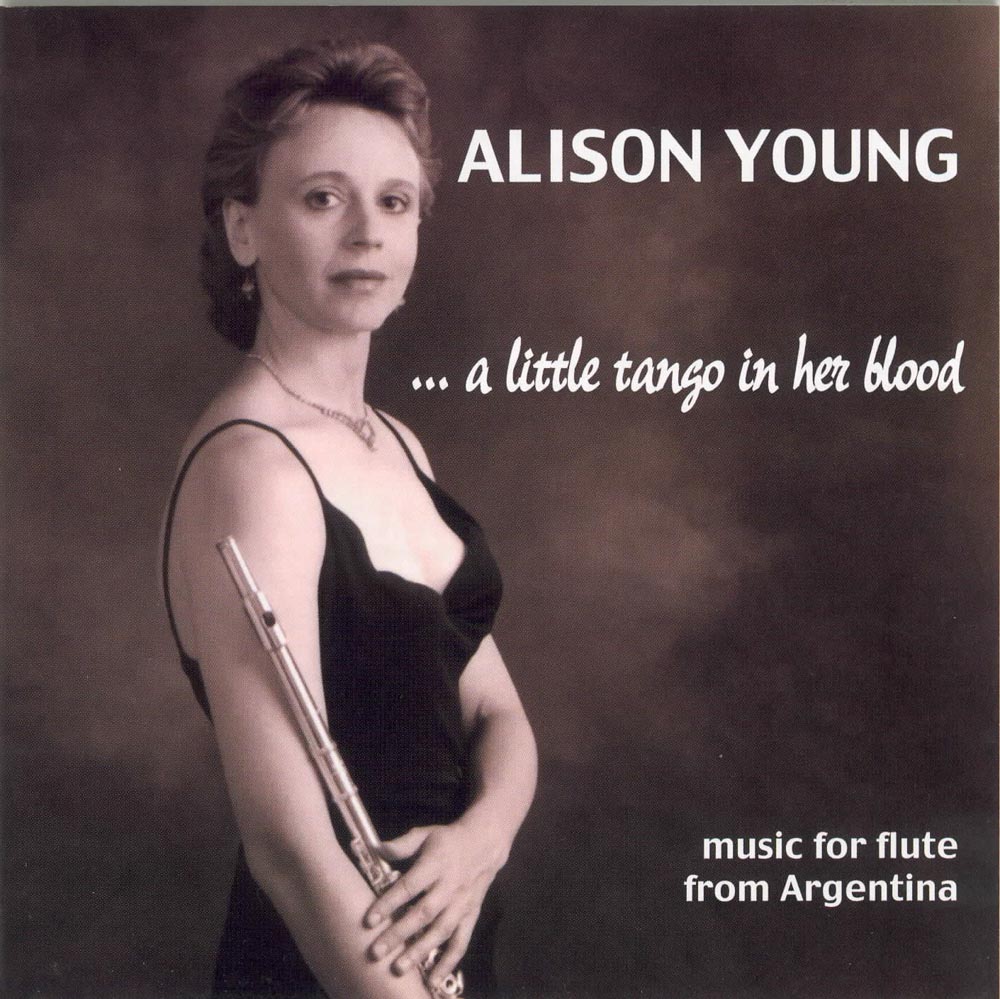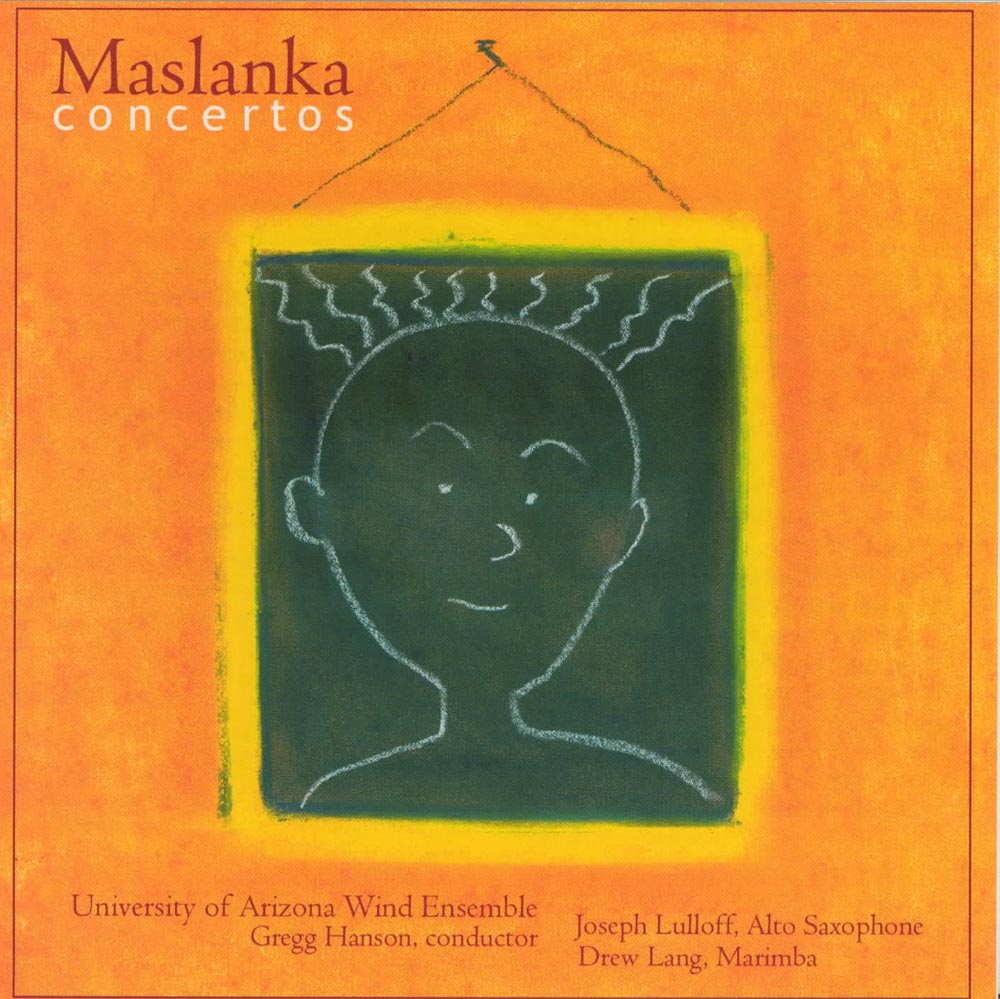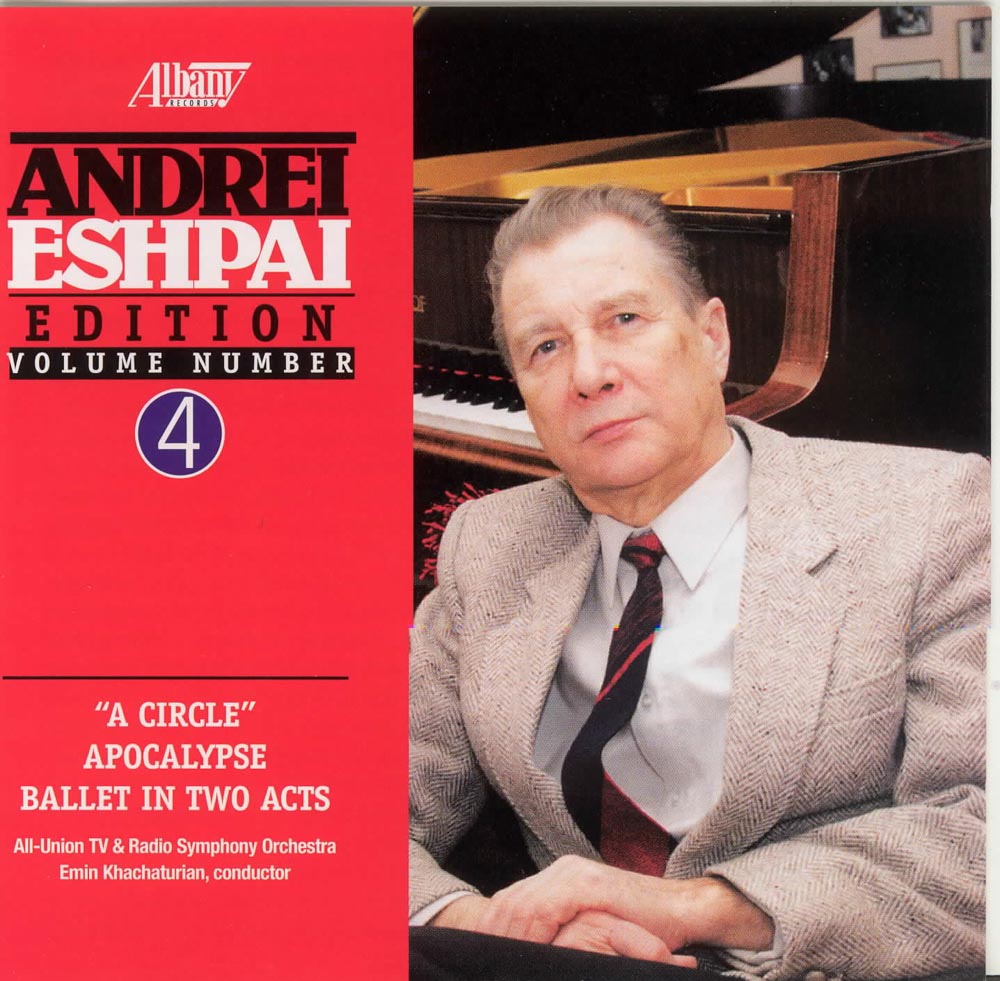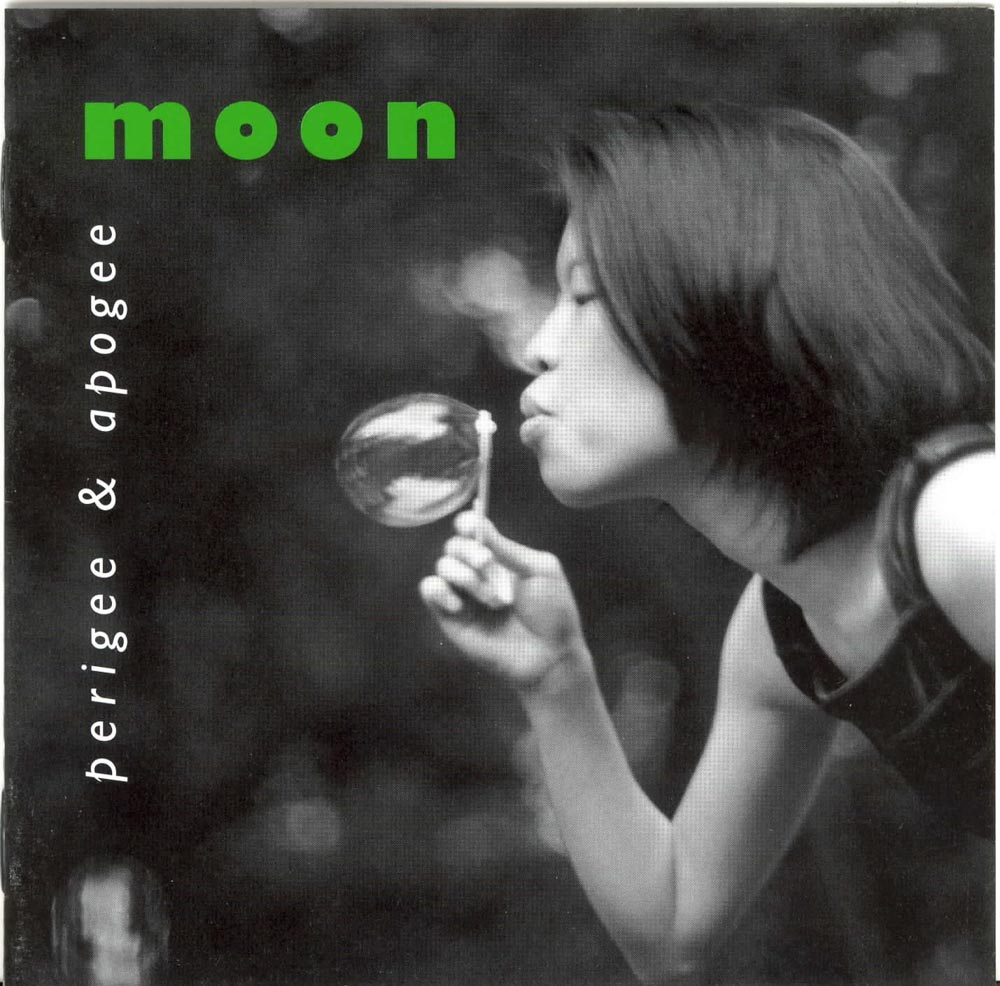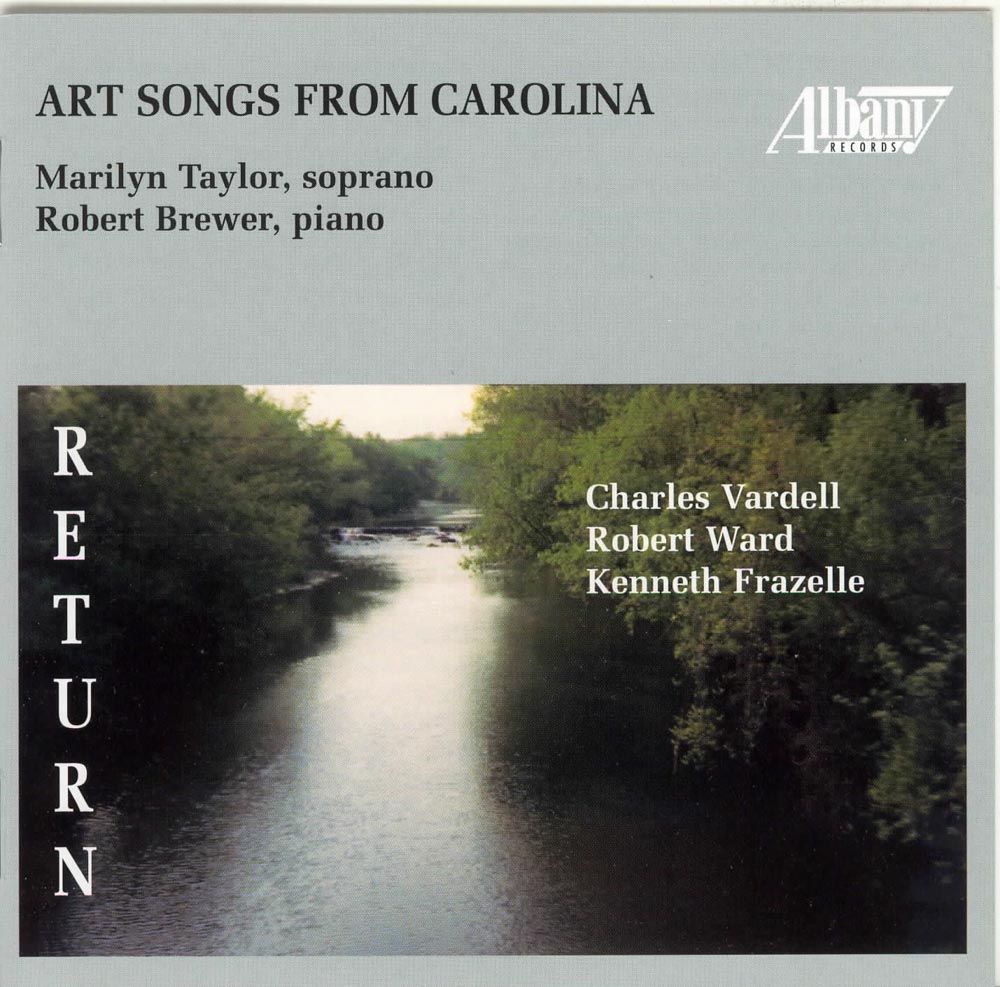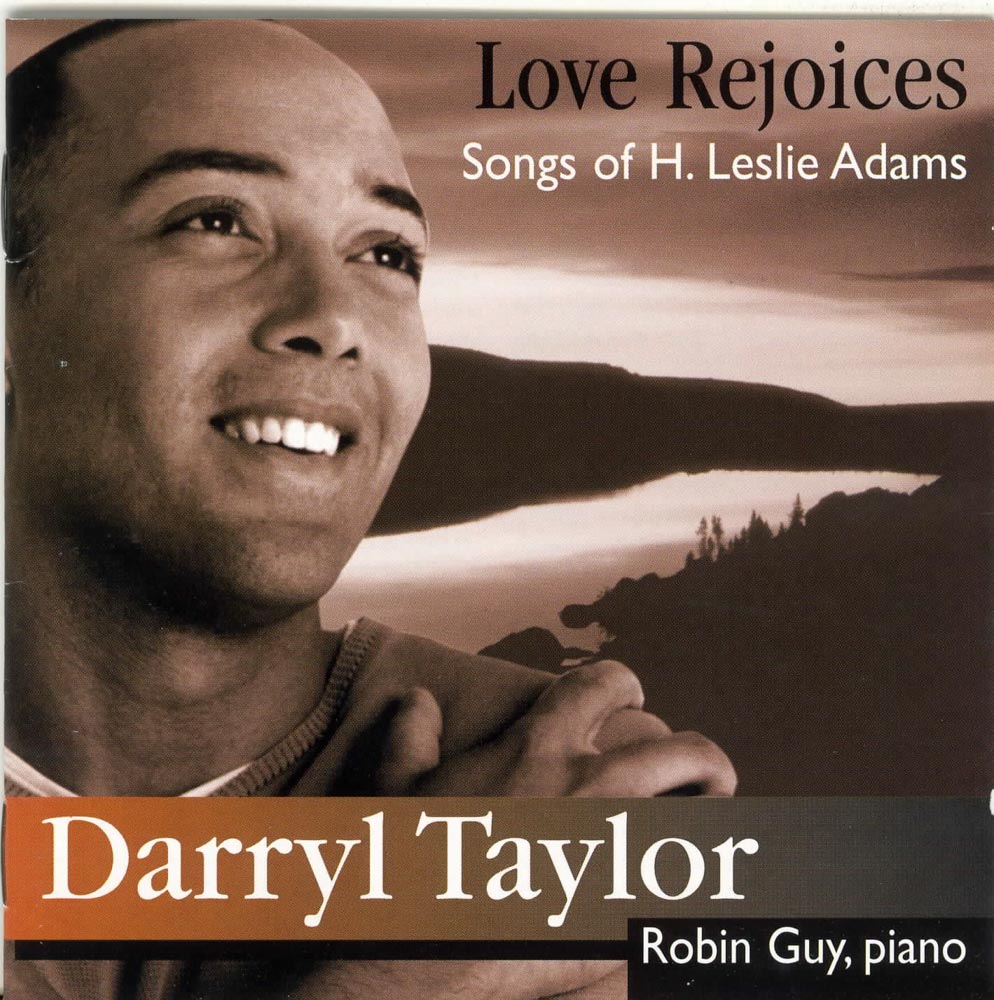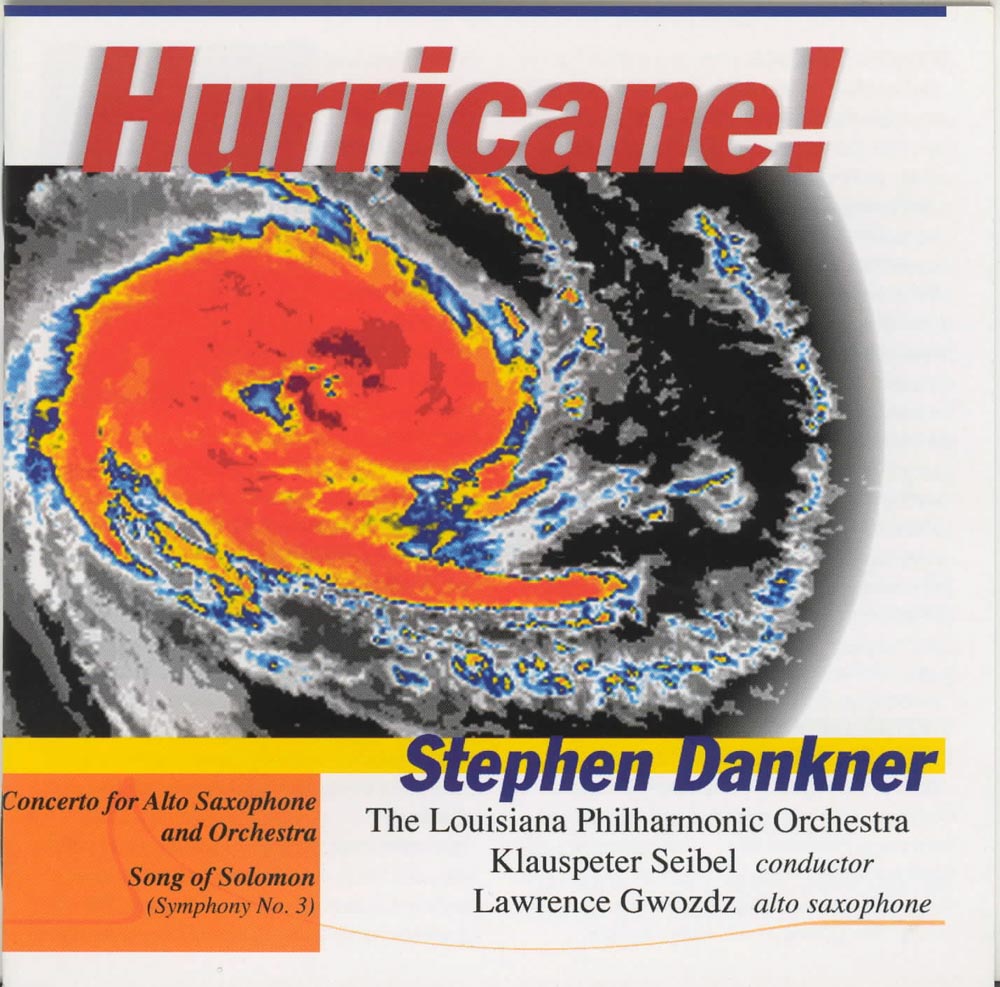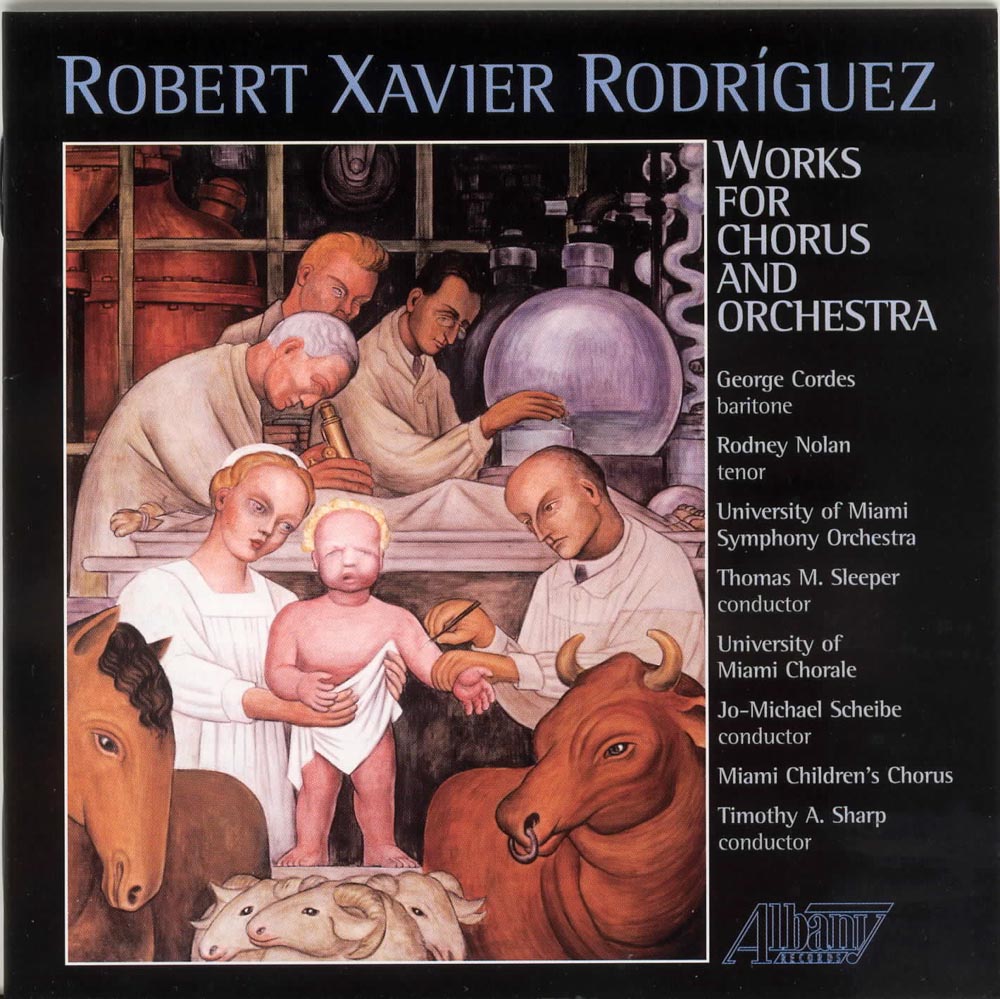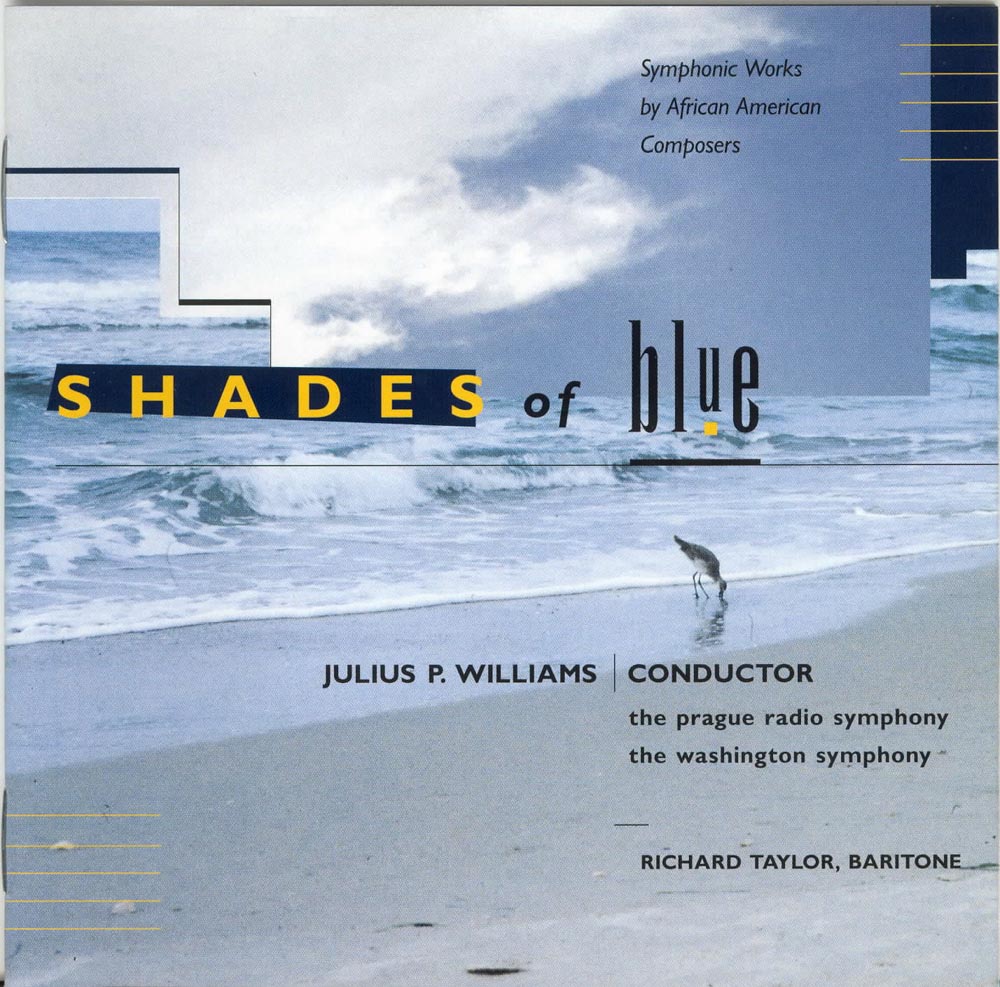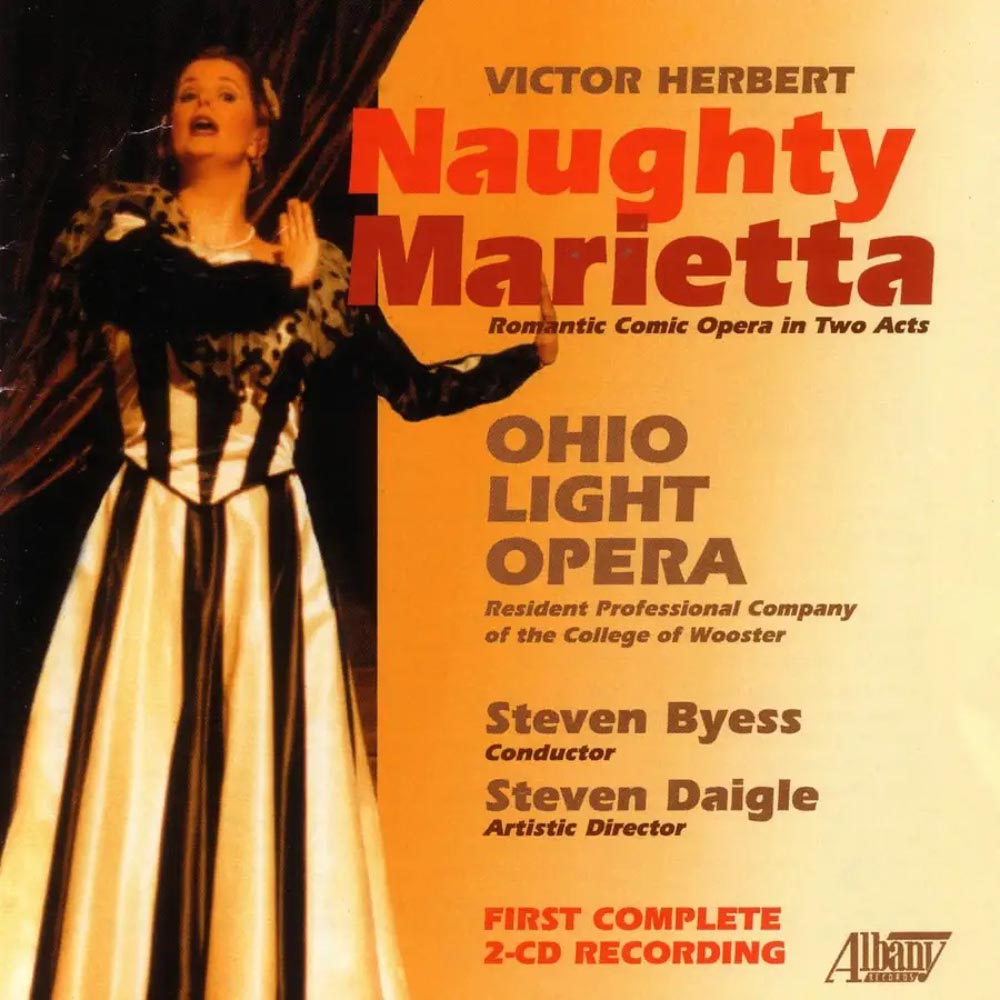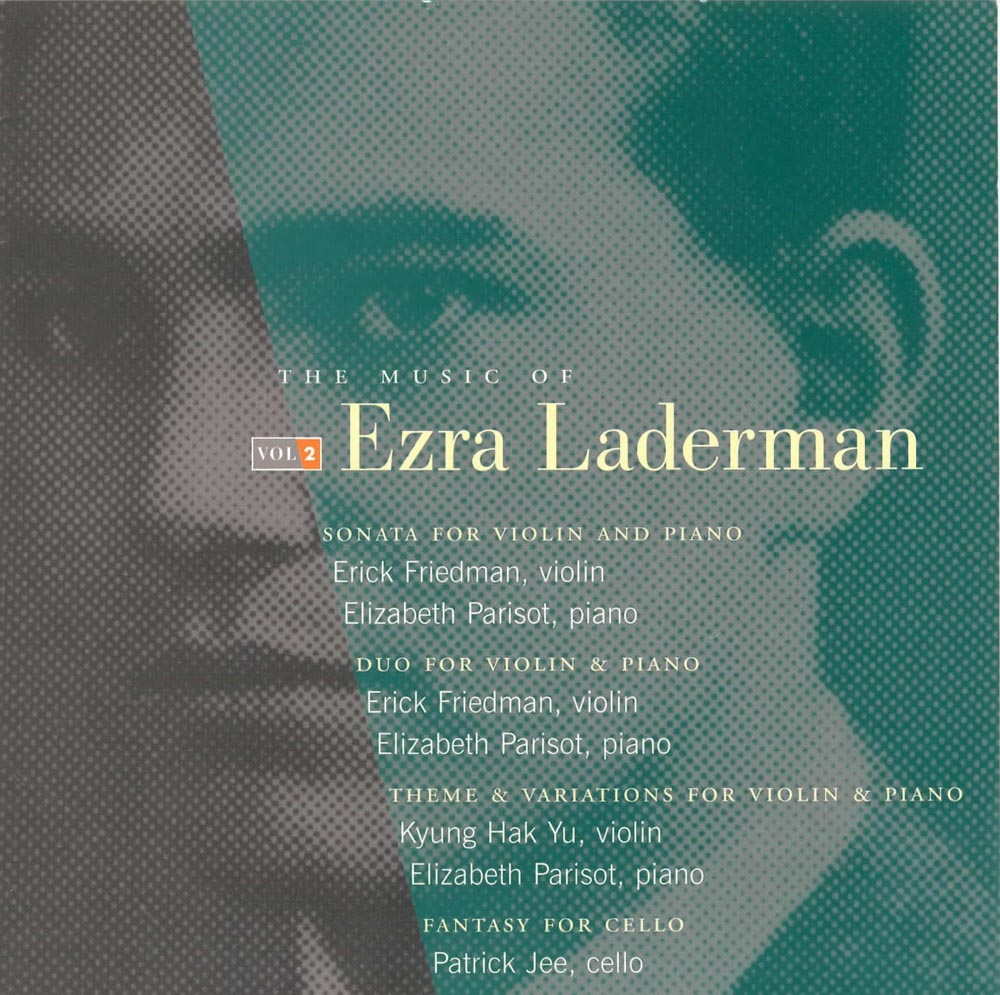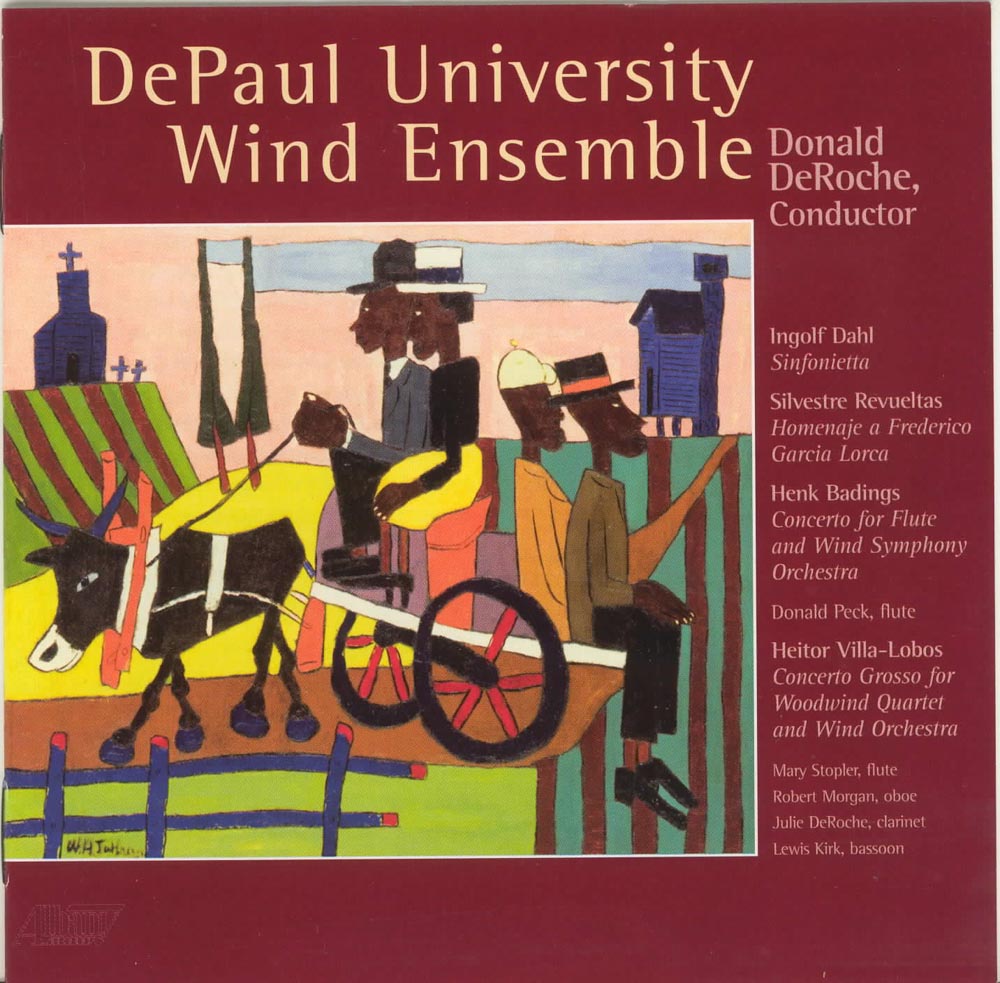Catalog #: TROY0403
Release Date: August 1, 2000Wind EnsembleKenneth Fuchs is currently Director of the School of Music at the University of Oklahoma. Christina's World was composed in New York City at the invitation of William Hipp, the Dean of the School of Music at the University of Miami. It was composed for the forces who perform it on this CD. Timothy Broege holds the position of Organist and Director of Music at First Presbyterian Church in Belmar, New Jersey and is a faculty member of the Monmouth Conservatory of Music in Red Bank, New Jersey. Michael Daugherty's Niagara Falls is a kind of musical souvenir inspired by the composer's many trips to Niagara Falls. It is a ten minute musical ride over the Niagara River with an occasional stop at a haunted house or a wax museum along the way. Gordon Jacob's Concerto for Bassoon blends the style and sonority of a traditional 18th century concerto with the well-defined melodies that are the hallmark of Jacob's style. David Gillingham is Professor of Theory and Composition in the Department of Music at Central Michigan University. His Concertino was commissioned by the Oklahoma State University Wind Ensemble.
Catalog #: TROY0404
Release Date: September 1, 2000VocalMany people think Alec Wilder was our finest composer of American songs. This CD will give you the opportunity to judge for yourself. Alec Wilder was born in Rochester, N.Y. Largely self-taught, he came of age as a composer with the birth of the Eastman School of Music. His relationship to the school was a rocky one, though he was a regular during his student years, he never graduated. He was a composer who was at home with American music in the largest sense - from Broadway to Hollywood, popular or classical - and the idiosyncratic mixture of styles in his music makes it just as much an "American original" as that of his avant-garde contemporaries. The "President of the Derriere-Garde" as he was often called, he simply composed - and often composed simply - music of charm and beauty for the musicians who were his artistic partisans, giving little thought to the categories into which other people might place it.
Catalog #: TROY0405
Release Date: August 1, 2000OperaRichard Trauber who made the English translation of this work writes: "Spanish operetta is technically older than any other European operetta form, taking its name from the Zarzuela Palace outside Madrid. Zarzuela went through various transformations over succeeding decades, taking on attributes of other European musical-theater forms: Italian grand and comic opera, French opera-comique, operetta, and even revue. Tomas Breton's The Festival of Our Lady of the Dove is widely regarded as perhaps the most perfect of all short zarzuelas. The music heard on this recording is exactly what was heard in 1894, with a very close English approximation to the original Spanish libretto (included). In addition, we have added a typical operetta finale to the work."
Catalog #: TROY0406
Release Date: September 1, 2000VocalLieder, so prominent in German and Austrian culture at the end of the 18th century, did not figure prominently in the output of Franz Joseph Haydn. To most of today's musical public, they are of somewhat secondary importance, and not well known. Only in recent years, such internationally acclaimed vocalists as Elly Ameling, Arleen Auger, Anne Sofie von Otter, and now the great American mezzo Victoria Livengood, have begun to include them in their recitals. Haydn wrote his first songbook in 1781, with a second in 1784. These two sets of English canzonettas were created during his stay in London in 1794-95, where he met the English poetess Anne Hunter. Later, two more English songs were added. The canzonettas are marked by a rhapsodic and elegiac flavor, influenced by Herder's emphasis on the folk song.
Catalog #: TROY0407
Release Date: October 1, 2000ChamberKenneth Frazelle was born in Jacksonville, North Carolina and was a student of Roger Sessions at the Juilliard School. He attended high school at the North Carolina School of the Arts, where he now teaches. He is composer-in-residence with the Los Angeles Chamber Orchestra and the Santa Rosa Symphony. His score for Still-Here brought him international acclaim. The music, written for the folksinger Odetta and ensemble, was written as part of a multimedia dance theatre work. The film version of Still-Here has been viewed by millions on National Public Television and in Canada, France and Japan. Composer and percussionist Aaron Bachelder has composed Chamber, choral, Orchestral and electronic music, as well as songs in popular genres. In addition to his compositional activities, he is a founding member of the improvisational Chamber group, the Spool Ensemble, and the rock band Chapsticks. Robert Ward writes that his piece Appalachian Dances and Ditties "reflects the interest I have had in American folk music in general since the 1950's and in Appalachian music in particular since the 1970's when my wife and I had a second home in Sparta, North Carolina. The richness and vitality of that music is unparalleled by that of any other region of the country." Lukas Foss writes: "I wrote my Three American Pieces at a time when I was in love with my newly adopted country. All the music possesses an open-air quality I think I learned from Aaron, but I have handled it my own way. And there is always the influence of folk music - I looked at it a lot. I was also in love with jazz. The only popular idiom I never got close to was Broadway."
Catalog #: TROY0408
Release Date: August 1, 2000VocalThe Luzerne Chamber Music Festival presents eight weekly concerts on Monday evenings during July and August in Lake Luzerne, New York. The concerts are held under the auspices of the Luzerne Music Center, a music camp for talented young musicians founded in 1980 by Philadelphia Orchestra cellist Bert Phillips, and his wife, Toby Blumenthal, concert pianist. All the music on this CD was performed as part of this imaginative concert series. Theresa Treadway Lloyd is the head of vocal studies at the Luzerne Music Center and does perform regularly at the Festival.
Catalog #: TROY0409
Release Date: October 1, 2000Vocal"This CD is a crossover adventure - a musical cocktail of classic jazz standards with a dash of continental, a Latin twist and a splash of the blues. This eclectic atmosphere has always been my home. My father, a contemporary classical composer (Leon Kirchner, Pulitzer Prize 1967), conductor and pianist, took me to see Ray Charles, played and analyzed Duke Ellington songs with me and pointed out the brilliance of a young guitarist named Jimmy Hendrix as we discussed Mozart, Bach, and Schoenberg. My mother was a coloratura soprano who had performed classical lieder and show tunes in New York supper clubs. I myself have moved from classical, folk and pop music to musical theater and ultimately to jazz." Thus writes Lisa Kirchner as she describes this new album.
Catalog #: TROY0410
Release Date: February 1, 2001OrchestralP. Peter Sacco was born into an intensely musical family in Albion, N.Y. A long line of professional and amateur singers and instrumentalists provided a diverse and supportive context in which Sacco states: "I never thought of doing anything but music. I started at age four on the piano and haven't stopped since." He attended the Eastman Preparatory School of Music in Rochester where he studied theory, piano and voice. He was drafted during the Korean conflict and stationed in Frankfurt, Germany. There he studied at the Frankfurt School of Music. In 1953, he went back to Eastman, from which he graduated. From 1959 to 1981, he served on the faculty of San Francisco State University. Today he continues to teach, perform, and compose in Ashland, Oregon.
Catalog #: TROY0411
Release Date: February 1, 2001InstrumentalGeorge Walker began his concert career as a pianist with a "notable debut" recital in Town Hall, New York, in 1945 - a recital sponsored by Mr. and Mrs. Efrem Zimbalist. Two weeks later, he performed the Third Piano Concerto of Rachmaninoff with the Philadelphia Orchestra, Eugene Ormandy conducting. He was immediately hailed as one of the most brilliant pianists of his generation. In 1950, he became the first black instrumentalist to be signed by a major concert management, National Concert Artists. In 1953, he made an unprecedented tour of seven European countries - Sweden, Denmark, Holland, Germany, Switzerland, Italy and England with phenomenal success. Today, he is a member of the American Academy of Arts and Letters and the American Classical Music Hall of Fame. And by the way, as a composer, in 1996, he was awarded the Pulitzer Prize in Music for his composition Lilacs for Voice and Orchestra, which was premiered by the Boston Symphony Orchestra with Seiji Ozawa conducting.
Catalog #: TROY0412
Release Date: February 1, 2001ChamberAbout Mountain Roads, the composer David Maslanka writes: "The music of Mountain Roads is a very personal statement. I feel very deeply about every bit of it. The musical plan of it follows the model of a Baroque cantata, and style and content reflect my years of study of the Bach chorales, and of Bach in general. Obviously there are no words in my "cantata" but the music revolves entirely around two chorale melodies. The title Mountain Roads comes from a dream I had while writing the piece". About his Sax Appeal David Stock writes: "The work was commissioned by the Amherst Saxophone Quartet by Summerfest, a music festival in Pittsburgh, for its 10th anniversary season. The premiere took place in July, 1990. The work is in four movements: Set Up, Blues, Sarabande, and jump. Jazz is clearly the primary influence, as befitting the genre that brought this wonderful instrument into its own". Russell Peck's Drastic Measures is the only piece on this disc that has been recorded before. About it, the composer writes: "During my brief university teaching career I came into contact with excellent saxophonists at Northern Illinois University who had a quartet and wanted a piece from me. That's how I came to write Drastic Measures in 1976. A year later I went to the School of the Arts in North Carolina where James Houlik had a great saxophone studio and a wonderful student quartet that became the New Century Saxophone Quartet. I touched up the piece for them and that became its final form."
Catalog #: TROY0413
Release Date: November 1, 2000InstrumentalCurrently a faculty member of the Washington Conservatory, Haskell Small received his musical training at the San Francisco Conservatory and Carnegie-Mellon University. He has studied piano with Leon Fleisher, William Masselos and Robert Sheldon and composition with Vincent Persichetti. His musical output is difficult to categorize. Nevertheless, it is clear that he is a throwback to the great composer/pianist tradition of the past four centuries. For almost three decades he has been performing internationally as a soloist. Throughout his teen years, he was adept at playing various jazz and rock styles by ear, but he did not acquire fluent musical literacy until he was 18. Although his compositions include works for cello, voice and various chamber and orchestral groupings, solo piano music remains the main thrust of his work. The program of solo piano music found on this disc was conceived, and is presented, with the intense concentration, wit, and quirky juxtapositions that Small's concert audiences have learned to expect.
Catalog #: TROY0414
Release Date: March 1, 2001ChamberAnthony Iannaccone was born in New York City and studied at the Manhattan School of Music and the Eastman School. His principal teachers were Vittorio Giannini, Aaron Copland, and David Diamond. During the 1960's, he supported himself as a part-time teacher at the Manhattan School and as an orchestral violinist. His catalogue of approximately fifty published works includes three symphonies, as well as smaller works for orchestra, several large works for chorus and orchestra, numerous chamber pieces, a variety of works for wind ensemble, and several extended a cappella choral compositions. Since 1971, he has taught at Eastern Michigan University, where he conducts the Collegium Musicum in 18th century music for chorus and chamber orchestra. Another disc of his music is available on Albany Records (TROY280), which features his music for wind ensemble.
Catalog #: TROY0415
Release Date: April 1, 2001VocalThe presence of the great Marilyn Horne and the late Henry Lewis on this CD is a special treat. Songs of Flowers, Bells and Death; Contextures IV was commissioned by the Barlow Endowment of Music Composition at Brigham Young University. The premiere took place on March 8, 1994 with Ron Brough conducting the Brigham Young Concert Choir and Percussion Ensemble. The meaning of the work is best expressed in its text which embraces approximately 2600 years of sadness and anger. Silent Boughs "To Jackie" was written in 1963. This song cycle for mezzo soprano and string orchestra on poems of Edna St. Vincent Millay was commissioned by Marilyn Horne and Henry Lewis. It received its first performance on November 15, 1963 in Stockholm, Sweden with the Los Angeles Chamber Orchestra. Contextures II is based on nearly 3000 years of anti-war poetry, from Homer to Fanta Bass (1930-1944). A line of oscillating major seconds hovering over a static harmony and funereal bell sounds conclude Contextures: Riots Decade '60, and overlap into the opening of Contextures II. The major seconds refer to the opening of the African-American spiritual We Shall Overcome, so closely associated with Martin Luther King and the civil rights movement.
Catalog #: TROY0416
Release Date: October 24, 2000OrchestralThis collection of works by Respighi, Martinu and Musorgsky/Ravel is centered around pictures: Boticelli, Francesca, and Hartmann. Given stunning performances by the Long Beach Symphony conducted by Jo Ann Falletta, this is Albany's second release with this fine orchestra and world-class maestra.
Catalog #: TROY0417
Release Date: November 1, 2000ChamberBorn in Barcelona, Spain, Leonardo Balada graduated from the "Conservatorio del Liceu" of that city and the Juilliard School in 1960. He studied with Vincent Persichetti, Aaron Copland and Igor Markevitch. Since 1970 he has been teaching at Carnegie Mellon University in Pittsburgh, where he is University Professor of Composition. Another volume of his music appears on Albany TROY343.
Catalog #: TROY0418
Release Date: March 1, 2001VocalAlthough he was one of the most important British composers of the mid-20th century, during his lifetime Bernard Stevens attracted rather less attention than some of his contemporaries. He was a fine pianist; however composition became his preoccupation after study in the 1930s with E.J. Dent at Cambridge University and R.O. Morris at the Royal College of Music in London. Here Stevens gained the highest awards and later became a distinguished professor. Stevens was highly respected within the musical world. He composed steadily, and his works were performed; but it was more or less inevitable that his professed left-wing sympathies and intellectual and moral integrity sometimes brought him into conflict with the attitudes of the British musical establishment. Despite his solid academic record, Stevens was anything but academic in style, personality and convictions. The two works presented here are the final two vocal compositions that he composed. He adapted the libretto himself for The Shadow of the Glen, from the play by John Millington Synge.
Catalog #: TROY0419
Release Date: November 1, 2000ChamberDebra Wendells Cross holds the position of Principal Flute in the Virginia Symphony. She also serves on the faculties of the College of William and Mary and Old Dominion University, and during the summer is Principal Flutist of the Eastern Music Festival in Greensboro, North Carolina. The Seattle native graduated with honors from the New England Conservatory. She also studied in Paris with Michel Debost. Barbara Chapman holds the position of Principal Harp for the Virginia Symphony and the Virginia Opera. She has also performed at the Glimmerglass Opera Festival in New York and continues to perform annually at the Virginia Waterfront International Arts Festival.
Catalog #: TROY0420
Release Date: June 1, 2001ChamberThe Brazilian String Quartet, affiliated with the Federal University of Rio de Janeiro, has a 48 year history as one of the world's most distinguished ensembles. This CD is devoted to four Brazilian composers of the 20th century. Villa-Lobos needs no introduction. Radames Gnattali settled in Rio di Janeiro permanently in 1931. He became conductor of the city's Radio National Orchestra and became well known because of his arrangements and orchestrations of popular songs. His own serious music was inspired by popular music and was very nationalistic. It contained elements of post romanticism. Jose Vieira Brandao studied piano with the great French pianist Marguerite Long and in 1932 became the assistant to Villa-Lobos as he attempted to reform the music education system of Brazil. For many years he was the President of the Brazil Music Conservatory. Cesar Guerra-Peixe graduated from the Conservatory in 1943 with degrees in piano and composition. His early works were written in the 12-tone idiom which he soon abandoned, adopting a more nationalistic approach which he felt better defined his own musical goals. He did a great deal of research on the subject of Brazilian folk music and taught composition privately for over 30 years.
Catalog #: TROY0422
Release Date: January 1, 2001ChamberEvan Chambers studied composition at the University of Michigan, where he joined the faculty in 1993. He is also a traditional Irish fiddler, and appears frequently as a performer of his own works. The composer writes: "I grew up on the edge of the suburbs. Living at a balance point between urban and rural, I did not fully belong in either world but always moved in both: symphony concerts, shopping malls, and trips to museums on one hand, and fields, ponds and endless walks in the woods on the other. I also occupied the dividing line between folk and classical music, surrounded as I was by my father's equally enthusiastic renditions of Tchaikovsky on the violin and John Henry on the five-string guitar. I came to love the beauty of in-between spaces." It can safely be said that Evan Chambers' music occupies most imaginatively all these in-between spaces.
Catalog #: TROY0423
Release Date: November 1, 2000ChamberHailed by the Atlanta Constitution and Journal as a "recitalist of great poise and technical security, dazzling precision and virtuosic flair," Alison Young has a diverse music career as an orchestral principal, soloist and teacher. A graduate of the Interlochen Arts Academy, she holds degrees in music from the University of Southern California and the Cleveland Institute of Music. In 1998, composer David Diamond applauded Ms. Young's interpretation of his Flute Concerto as "some of the finest flute playing I have heard." She recorded the premiere of this work which can be found on Albany TROY308. For much of her life Alison Young has felt a desire to travel to Argentina and immerse herself in that culture. In 1998, she was invited to serve a six-week performing and teaching residency in Argentina in the regions of Patagonia, La Plata, Buenos Aires, and Corrientes. She continued to share her work and study of the music with a seven-week tour of the United States in 1999 presenting recitals and master classes on Argentinean flute music. This recording represents the culmination of that particular project with a cross-section of music for flute from Argentina.
Catalog #: TROY0424
Release Date: December 1, 2000Wind EnsembleDavid Maslanka writes about his Saxophone Concerto: "This concerto turned out to be a good deal longer than I would reasonably want. As I got into the composing, the ideas became insistent: none of them would be left out!" About his Marimba Concerto, here is what Mr. Maslanka has to say: "This concerto could easily be subtitled 'rhapsody' or 'fantasy' because of its meditative or free-flowing quality. It is easy to describe the overall shape an extended slow to moderate opening section, an explosive fast section, a quiet closing section but less easy to describe the internal working of the piece." Here the listener will have to use his or her imagination. David Maslanka was born in New Bedford, MA. He attended the Oberlin Conservatory, and studied for a year at the Mozarteum in Salzburg, Austria. He did master's and doctoral work in composition at Michigan State University with H. Owen Reed. He is now a free-lance composer and lives in Missoula, Montana.
Catalog #: TROY0425
Release Date: December 1, 2000OrchestralHere is one of Maestro Eshpai's greatest scores. This music was once available as a 2-LP Melodiya set and was long sought after by collectors. The sound has been re-mastered and is here presented on CD for the first time. In essence "A Circle" is a ballet symphony. So significant is the theme of the ballet, the landscape of the infinitely changing world, that one is naturally led to the idea of its treatment by purely orchestral, symphonic means outside any imagery. Lyricism occupies a prominent place in the ballet as does music from previous ages. There is the Viennese waltz, the military march, a gracious old-fashioned arrangement of the minuet. Of course rhythms of the 20th century permeate the work as do echoes of music from jazz bands and even a hint of rock. There are the sounds of bells throughout the work symbolizing death and there are lovely, lyrical themes from the strings symbolizing the two lovers. Here is music in the mainstream of Russian ballet. If you enjoy Shostakovich, you will love this new composition by Eshpai.
Catalog #: TROY0426
Release Date: January 1, 2001ChamberKorean-American composer/pianist/educator Beata Moon embarked on her musical career at the age of eight performing with the Indianapolis Symphony Orchestra. Her flight into composing began after she graduated from Juilliard in 1990, where she studied piano under Adele Marcus. Subsequently, the role of the composer as performer and educator became an important one in Moon's life. She performs her own works, in addition to those of both traditional and contemporary composers, and is actively involved in aesthetic education as a teaching artist at Lincoln Center Institute. Curiously, like her name, Beata Moon's music does not betray its origins. The music sounds American, at least no other country's music would contain her mixture of elements. She is self-taught as a composer. Her music is an irrepressible outpouring and sounds like it.
Catalog #: TROY0427
Release Date: August 1, 2001VocalMarilyn Taylor writes: "My voice sat down in this music. It kicked its shoes off and felt cold bare earth and said 'this is home.' The events leading to the creation of this disc took place over many years. A motivating factor in producing it was bringing the songs of Charles Vardell to light, as well as other unrecorded works of composers either born, or living in North Carolina. Synchronicity has proven that a link exists between myself and each group of songs, sometimes becoming obvious only after the fact. Moving to Winston-Salem in 1992 to teach at the North Carolina School of the Arts was made easier because the terrain and homes reminded me of Louisville, Kentucky, my birthplace. Here I discovered I share with Frazelle and Vardell a love of land and hills and an appreciation of rural life and music, instilled in me by childhood visits to relatives in 'the country' and long jaunts in the woods there. The songs of Robert Ward do not evoke these types of images; however, a connection between Millay (from whom the text is taken) and myself exists in the passion for a younger man, which in my case became a marriage and a musical collaboration lasting fifteen years."
Catalog #: TROY0428
Release Date: January 1, 2001VocalBest known for his opera, Blake, his art songs and choral writing, Harrison Leslie Adams has made significant contributions to the genres of vocal and instrumental music. Currently a full time composer living in his hometown of Cleveland, Ohio, his music has earned him national attention. He graduated from Oberlin. Among his teachers were Herbert Elwell, Joseph Wood, Robert Starer and Vittorio Giannini. It is appropriate that this first compact disc dedicated to his music be of his songs for he is certainly one of the most gifted and immediately lyrical composers of our time. About Darryl Taylor the great MET tenor George Shirley writes: "It was a foregone conclusion that Darryl Taylor would one day record the works of composer H. Leslie Adams. From the day of our first meeting in Los Angeles in the mid-1980's, it was apparent to me that this young tenor was an artist with a two-fold mission: to champion the works of African-American composers, and to commission and otherwise encourage composers of whatever race or ethnicity to create new works for the singing voice. This CD recording of songs from the prolific pen of Leslie Adams is a shining example of Dr. Taylor's sterling artistry and dedication to the perpetuation and performance of the American art song.
Catalog #: TROY0429
Release Date: January 1, 2001OrchestralHere is a great new disc featuring the wonderful music of an American composer performed by a fine American orchestra. What does Dankner's music sound like? Dankner of course, but also a slightly more modern (and inventive) Howard Hanson. As you will hear for yourself Dankner is a composer whose works encompass the breadth of scope and range of expression of the late-Romantic tradition. In his music, there is an emphasis on melody, rich textures, chromatic harmony and contrapuntal devices. The Louisiana Philharmonic is the only musician-owned and managed orchestra in the United States. It has a long-standing relationship with the composer Stephen Dankner, thus it is fitting that the orchestra's very first recording feature the music of Mr. Dankner. Each of the three works which appear on this CD were given their New Orleans premiere by the Louisiana Philharmonic and Hurricane and Song of Solomon were world premieres given by the orchestra. Dankner's music has earned applause, not only from the orchestra and its conductor, but also from audiences. Unlike the music of those composers Ned Rorem dubbed the "serial killers," his work is progressive but accessible, capturing a style of late-Romanticism while incorporating newer influences and voices. Listen for the rich, Straussian-like colors in the vivid "Hurricane." The sweeping expanse of love in all its delight and mystery infuses "Song of Solomon." And with the newest piece on the disc, the Concerto for Alto Saxophone, Dankner expands our perceptions of where this instrument fits in the world of classical music.
Catalog #: TROY0430
Release Date: June 1, 2001OrchestralRobert Xavier Rodriguez is one of the most significant and often-performed American composers of his generation. His teachers have included Nadia Boulanger, Jacob Druckman, Bruno Maderna and Elliott Carter. His Forbidden Fire, Cantata for the Next Millennium is scored for bass-baritone, double chorus and orchestra. The work was commissioned by the University of Miami School of Music and received its world premiere on October 17, 1998. Conceived as a companion piece to Beethoven's Symphony No. 9, it is a 22 minute exploration of dangerous or forbidden knowledge, as represented by the Promethean metaphor of stealing fire from the gods. Con Flor y Canto is a narrative cantata, the central portion of Rodriguez' Adoracion Ambulante (1994), a full-evening multi-media Mexican folk celebration. This work had its premiere in October, 1994. Scrooge, Concert Scenes from "A Christmas Carol" for bass-baritone, Chorus and Orchestra telescopes the actions and myriad characters of Dicken's story into an 18 minute tour de force of five short scenes featuring the single character of Scrooge accompanied by a chorus of ghosts and holiday revelers.
Catalog #: TROY0431
Release Date: January 1, 2001OrchestralThe works on this CD represent the rich, imaginative and varied scope of contemporary Black artists' landscapes and musical horizons. The composers, who represent various voices in style, generation and compositional approaches contained within the African American artistic experience, handle the cultural materials in ways that are not only cohesive but eloquent. These efforts further illuminate the attempt of contemporary artists to broaden, stretch, and expand the languages and forms of the modern orchestral culture. This partially live recording of the Prague Radio Symphony and Washington Symphony Orchestra, captures the essence of African American contemporary sacred and secular life through music. This recording does a great service to what composer T.J. Anderson calls, "the duty of the composer to document the culture." David Baker's Shades of Blue was commissioned by and written for the Roanoke Symphony, which premiered it in 1993 under Victoria Bond. The commission specified an orchestral work with a strong jazz influence but not requiring outside soloists. Leslie Adams' Ode to Life was commissioned by the Cuyahoga Community College of Cleveland on the occasion of its 15th anniversary. The composer considers it a "celebration of life itself." Stephen Newby's Gospel Songs were composed for Willis Patterson. They are really a compilation of four gospel songs.
Catalog #: TROY0432
Release Date: February 1, 2001OperaWe are so pleased to be able to offer this month the first complete CD recording of Victor Herbert’s beloved two-act classic romantic operetta, composed in 1910 and set in New Orleans. This performance was recorded live at the Ohio Light Opera 2000 Summer Festival by John Ostendorf. About this production, James Stuart, the founder of the Ohio Light Opera Company writes: “For summer 2000, Steven Daigle approached me in planning his first full season as Artistic Director. He wanted to undertake Marietta. He felt we should try to go back to the original materials and produce the show that had earned Victor Herbert such a triumph, with its beautiful melody, its tenderness, humor and resounding choruses. Steven’s mounting of the opera was a grand success. In its original form the relation of parts to one another makes much more sense. Free of excesses, the emphases now seem to fall in their proper places: the show is much tighter and the wonderful songs, following one on top of the other, leave the listener breathless.”
Catalog #: TROY0434
Release Date: May 1, 2001Chamber"When I was accepted as a student at the High School of Music & Art, created in 1934 by Fiorello LaGuardia, mayor of New York, my family decided to move a block away from the school in Manhattan. The move to 492 West 136th Street was significant because it brought us across the street from Lewisohn Stadium, the summer home of what was essentially the New York Philharmonic. It also brought me to within a fifteen minute walk of the old Juilliard School of Music. What precipitated the move was that living in Brooklyn we were one and one half hours by subway from the High School. I came home from school the first day in September 1936 lugging a full size double bass. The next morning my resolute mother paraded me to confront Alexander Richter, head of the music section at the School. Before my mother uttered a word, he calmly took away the double bass and handed me a flute." What an amusing incident from the life of the wonderful American composer Ezra Laderman. Here is another one. "When I reflect over the nineteen thirties and how I was shaped in those early years, the record library at Juilliard looms awfully large. For the first time in my young life I was able to listen to recordings while reading scores of the main body of music. Whether it was Sibelius's Second or the Grosse Fugue, it was absorbed with enormous excitement. I would spend countless hours listening, my ears covered by huge ear phones, my eyes buried in the print. Over and over again, score in hand, I would listen while the librarians, wonderful in helping and guiding me through this newly discovered wonderland looked on with amusement. I was hooked." A fine composer was born and you can now listen to his chamber music on this new CD. What goes around certainly does come around. (Hear also volume 1, TROY399.)
Catalog #: TROY0435
Release Date: June 1, 2001Wind EnsembleThe last 50 years has seen an amazing explosion in both the quantity and quality of composition for wind band and ensembles. In a frenetic effort to create new music for the medium, conductors and performers have sponsored, commissioned, and performed a staggering number of new works. It is now, after so much work has been done, that we must take time to rediscover and preserve some of the fine music this period of activity has produced. It would be truly a shame to neglect such a significant body of excellent work. It is in this spirit of preservation that we offer these "old," sometimes forgotten, but interesting works. Also, please note that the flute soloist in the Henk Badings Concerto is Donald Peck, the recently retired principal flute of the Chicago Symphony Orchestra.
Catalog #: TROY0436
Release Date: March 1, 2001OrchestralBorn in LaGrange, Illinois, Scott Steidl grew up in Minneapolis. There he studied piano, bassoon, and saxophone and developed an interest in playing jazz. Later as an undergraduate at Brown University, he studied composition with Ron Nelson and continued his activities in the field of jazz as director of the Brown University Stage Band. After graduating from Brown, Steidl studied composition with David Diamond and Elliott Carter at the Juilliard School, earning his Masters and Doctoral degrees in composition. He then completed his education by pursuing his other major interest: medicine. He also holds a doctoral degree in medicine from the Mount Sinai School of Medicine and specialty training at Harvard Medical School. His music is rooted in the vernacular of our time and represents the varied influences and rich imagination of the current American culture. His work strikes a balance among contrasting influences. A lover of popular music, jazz, music theater and western classical music, his musical point of view is inclusive rather than exclusive. In a concise description of Scott Steidl's music in The New York Times, John Rockwell characterized his work as "All-American."
Catalog

©2024 Albany Records. All rights reserved. | Privacy Policy | Website by PARMA Creative.
